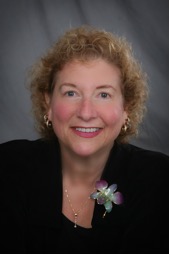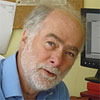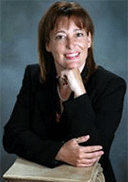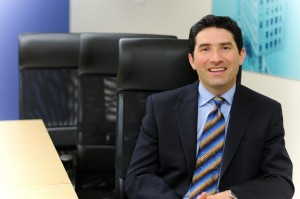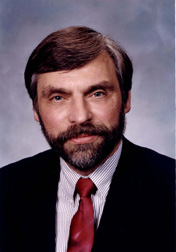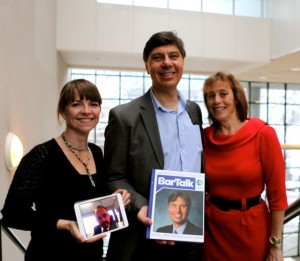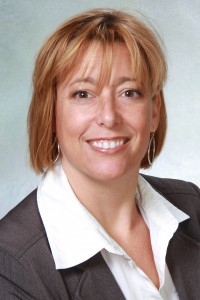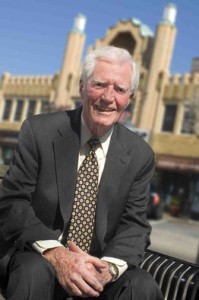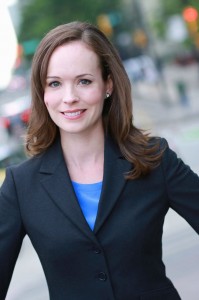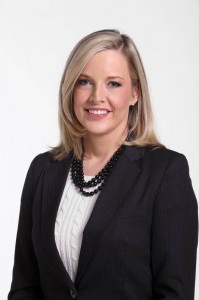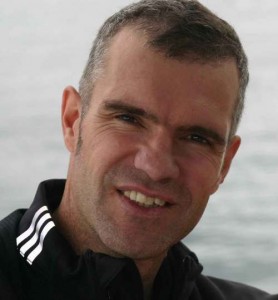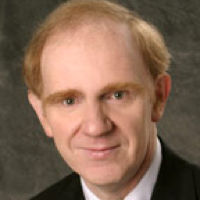♫ And if you don’t love me now
You will never love me again
I can still hear you saying
You would never break the chain…♫
Lyrics and music by: Stevie Nicks, Lindsey Buckingham, Christine McVie, John McVie, and Mick Fleetwood, records by Fleetwood Mac.
In this third and final instalment of the 2016 prognostications, we have predictions from:
- Sharon Nelson and John Simek
- Sheila Blackford
- André Coetzee
- Ben Stevens
- Brian Mauch
- Nikki Black
- Stephen Gallagher
- Tom Spraggs Jr
- Deb McMurray
- Mitch Kowalski
- Dave Bilinsky
Sharon Nelson and John Simek:
Predictions for Dave Bilinsky
- Encryption of confidential e-mail will surge – it’s no longer “too hard” or “too expensive” – and it may be ethically required (see 2015’s groundbreaking ethical opinion from Texas). We were busy all year installing ZixCorp (which seems to be favored by many law firms) and expect to be even busier doing it 2016.
- Because security is now paramount on the minds of so many lawyers, we have already seen a great deal of interest in Open Whisper Systems’ Signal encryption for use with voice and text communications via smartphone. Edward Snowden and cybersecurity guru Bruce Schneier are both fans – and we’re starting to see lawyers taking a serious look at this – it began hitting the listserves in 2015 and will likely grow in popularity. The caveat is that both parties to the communication must be using it.
- As we write, it has been announced that LegalZoom is buying a UK law firm. Look for some serious alternative business structure lobbying by LegalZoom, Avvo and others in the coming year.
- More and more large firms are acquiring the ISO 27001 certification – 27 of the AmLaw 100 firms have it now. This is not for the solo/small market but you will probably see a lot of those firms self-certify that they are compliant with the NIST small business data security standards.
- The Rise of the Machines seems more and more inevitable as Ross, the Superintelligent Lawyer (and ‘son’ of IBM’s Watson) has gotten ‘a job’ at Dentons and is being deployed by other large firms on a trial basis as well. A lot of paralegals and first/second year associates are likely going to be replaced by Ross and his progeny – if not in 2016, then soon thereafter.
- We have been surprised by how many lawyers adopted and fell in love with Microsoft’s Surface Pro 3 (us too). We are now seeing, for the first time, enterprise deployment of the Microsoft Surface Pro 4 – we expect that trend to continue. Folks are outfitting their firms with the a Surface Pro 4, a docking station, a full size keyboard, and two flat panel monitors. Grab it and go and you have a fully functional laptop in a tablet form. We don’t see the Surface Book achieving the same success – once you remove the keyboard and effectively have a tablet, the battery life plummets to about 3 hours. That’s a non-starter. Note that we have taken the Surface Pro 3 on cruises, European vacations, etc. and been fully functional. We see a bright future for the Surface Pro 4.
- Windows 10? Many waited (prudently) to install it, but almost everyone will have it by the July 29, 2016 deadline to install it for free. Look for all the compatibility and bug issues to be resolved by early 2016. This will become the workhorse that Windows 7 was in its time.
About John and Sharon:
Sharon D. Nelson, Esq.
Sharon D. Nelson, Esq., is the President of Sensei Enterprises, Inc., a digital forensics, information security and information technology firm in Fairfax, Virginia.
Ms. Nelson is the author of the noted electronic evidence blog, Ride the Lightning and is a co-host of the Legal Talk Network podcast series called “The Digital Edge: Lawyers and Technology” as well as “Digital Detectives.”
She is a frequent author (fourteen books published by the ABA and hundreds of articles) and speaker on legal technology, information security and electronic evidence topics. She was the President of the Virginia State Bar June 2013 – June 2014 and a past President of the Fairfax Law Foundation.
She may be reached at snelson@senseient.com
John W. Simek
Mr. Simek is the Vice President of Sensei Enterprises, Inc., an information technology, digital forensics and information security firm located in Fairfax, VA. Mr. Simek has a national reputation as a digital forensics technologist and has testified as an expert witness throughout the United States. He holds a degree in engineering from the United States Merchant Marine Academy and an MBA in finance from Saint Joseph’s University.
Mr. Simek holds the prestigious Certified Information Systems Security Professional (CISSP) and EnCase Certified Examiner (EnCE) certifications in addition to multiple other technical certifications. He currently provides information technology support to hundres of Washington, DC area law firms, legal entities and corporations. He is a co-host of the Legal Talk Network podcast Digital Detectives. He is a frequent author (twelve books published by the ABA and hundreds of articles) and speaker on legal technology, information security and electronic evidence topics.
He may be reached at jsimek@senseient.com.
Sheila Blackford:
Outsourcing in 2016 will continue, with more firms reaching out to non-traditional sources of legal assistance.
Don’t be afraid of hiring talent with different skill sets if they are compatible with your needs, especially if accompanied by attractive personality attributes.
![Digby[1]](http://thoughtfullaw.com/wp-content/uploads/2015/12/Digby1-225x300.jpg)
Digby consistently displays a remarkable accuracy rate in catching manuscript errors while maintaining an upbeat cheerful nature that fosters a pleasant work environment. I don’t think writing Trust Accounting in One Hour for Lawyers would have been as easy an undertaking without his support. Here he is checking things before sending the manuscript to ABA Law Practice Division Publications Board.
About Sheila:
Sheila Blackford is an attorney and has been a practice management advisor for the Oregon State Bar Professional Liability Fund since 2005, providing confidential practice management assistance to Oregon attorneys to reduce their risk of malpractice claims and ethics complaints. She is the former Editor-in-Chief of Law Practice, published by the ABA Law Practice Division and is co-author of Paperless in One Hour For Lawyers and a contributing author to the Flying Solo, 5th Edition both published by the ABA Law Practice Management Division. Her book Trust Accounting in One Hour for Lawyers is scheduled for publishing in 2016. She is a contributing author to the Fee Agreement Compendium published by the Oregon State Bar. Follow her blog Just Oregon Lawyers.
André Coetzee:
Here some predictions for 2016:
- The demand on bandwidth is going to continue to grow exponentially due to the even higher demand for performing work online. As result there are going to be more providers providing fibre internet connections at a reasonable cost.
- Wireless cellular providers are going to continue to invest in ways in making their networks faster too as well as increasing their reach into more rural areas. This is going to allow us to do even more on our Smart Devices.
- Adopting a client experience approach as opposed to a client satisfaction approach. The client experience is a holistic approach and ensures that all the functional areas within your firm consistently give the same experience to the client i.e. if your client is dealing with the receptionist or the managing partner, an associate or a paralegal the client experience will be the same. The client experience approach also deals with how\who you hire, how you treat your vendors etc. Adopting a client experience model is not easy to achieve, however can reap high rewards e.g. increase in new business\clients, client retention, happier staff, loyal vendors etc.
- Digital dashboards which allow Partners to view predetermined Key Performance Indicators to see how their firm is performing real time. The data will be pulled from multiple different data sources e.g. a legal application\s, a productivity application\s etc.
- The amount of data is increasing exponentially and hence tools\software that gives us quick and easy access to the large volumes of data we have whether it be on your server, in the cloud, computer at home etc. Also being able to add more storage on demand.
- More digital automation than we currently see today to improve, enhance, create new processes and maybe even create completely different business models i.e. using a combination of these technologies, mobile, cloud, data analytics, artificial intelligence etc. to provide better more customized services to clients quicker
- Being more nimble with regards to services and products provided to clients.
- Digital assistants performing mundane data entry e.g. names, addresses etc.
- Virtual reality is going to improve and holographic movies are on their way – saw a demo video of holographic technology where there were Rhinos and cheetahs walking around a shopping mall India –it was incredible.
- Simpler and more user friendly digital signature technology, improving processes and efficiency.
About André:
André Coetzee, MBA, PMP, BA, H.Dip.Ed.
(Masters in Business Administration, Project Management Professional, Bachelor of Arts, Higher Diploma in Education)
Andre Coetzee is a Director and a founding partner of i-worx, a Premium Hosting Service Provider for law firms. Andre is constantly researching and exploring new and better Hosted IT services with the goal of continuously providing legal firms a premier IT experience. As a result i-worx has developed a reputation for delivering innovative Hosted IT services to law firms, including Hosted Desktops, Hosted Email and secure file sharing with exceptional personalized service. For more information or to learn more about how hosted services could benefit your Firm, call 604.639.6300 or email andre@i-worx.ca.
Ben Stevens:
I believe that more attorneys will begin using the Apple Watch and integrating it in their practices and their lives. For instance, trial attorneys may realize that they can subtly receive messages from their associate regarding key points while questioning a witness. Further, the health integration is also an easily overlooked feature that could encourage attorneys to spend a little more time standing or moving around their office instead of sitting behind a desk all day.
About Ben:
Ben Stevens is a South Carolina family law attorney, who is a Fellow in both the AAML and the IAML. He has published The Mac Lawyer legal technology blog since 2006, and he co-founded the Macs in Law Offices (MILO) forum in 2007, which has almost 5,000 members today.
Brian Mauch:
My predictions for 2016 are:
- Small firms will adopt document management systems like Worldox in record numbers. The volume of documents and emails that firms need to manage is increasing exponentially each year.
- Android-based smartphones will overtake iPhones as the most popular choice for lawyers replacing their smartphones next year. iPhones had overtaken Blackberries a few years ago, and now its Android’s turn.
- Dual monitors for lawyers and staff have become the standard setup for many firms. The percentage of firms that have adopted multiple monitors will soon exceed more than 50%.
About Brian:
Brian Mauch is CEO of BMC Networks, a Vancouver-based outsourced IT provider that specializes in law firms. Brian obtained both law and commerce degrees from the University of British Columbia, and then combined his education with his passion for computers to form BMC Networks in 1997.
Nikki Black:
In 2016, smartwatch use by lawyers will start to take off.The biggest benefit of this type of technology is that it will help lawyers untether from their smartphones and filter out all but the most important, need-to-know information.
Cloud computing use by lawyers will also increase now that the technology and the legal cloud computing providers are becomingly increasingly familiar. Lawyers will use it for all sorts of law office functions, including billing, time tracking,and document storage. Othes will move all of those functions to the cloud by using a full-fledged web-based law practice management software system.
By incorporating cloud computing software and other types of emerging technologies, such as smartwatches, into their practices, lawyers will be able to streamline their practices and provide better representation to their clients.
Stephen Gallagher:
What a group of authorities you have brought together once again. I do not know how I can contribute other than saying that I still think every young lawyer should read Clayton Christensen’s book, “How Will You Measure your Life?”.
In this groundbreaking and remarkably personal book, Clayton Christensen and his coauthors James Allworth and Karen Dillon put forth a series of fundamental questions everyone asks themselves at some point in their lives:
- How can I be sure that I’ll find satisfaction in my career?
- How can I be sure that my personal relationships become enduring sources of happiness?
- How can I avoid compromising my integrity—and stay out of jail?
Using lessons from some of the world’s greatest businesses, applying his theories about disruptive innovation, and drawing personal examples from his own life, Christensen and his coauthors seek to answer these questions by presenting a way for each of us to think about our lives and find the satisfaction, happiness, and direction necessary for a successful and happy future.
I’ve admired Clayton Christensen for some time now. He is among other things a devout Mormon. He writes that he is very grateful for several early decisions he made in his career. In a speech to Brigham Young University–Idaho Devotional he said that one of his decisions was made at Oxford. He told his audience that he is 6’8″, so he tried out for and made the Oxford Varsity basketball team. They turned out to have a great team. He said that those guys were the best friends that he ever known in his life, and they went through the regular season and were undefeated.
Then they went into the British equivalent of what we would call the NCAA basketball tournament. They marched through each of those games in a fairly easy fashion until they came to the final four. When he looked at the schedule he realized that the final basketball game was scheduled to be played on Sunday in Bristol. He was devastated because he had made a commitment to himself when he was 16 that he would never play basketball on Sunday.
He went to the coach truly conflicted. The team had worked their guts out all season long and Clay was the starting center, and he wanted to help them win this goal that they had all practiced for. And yet he had made this commitment to Heavenly Father and to himself. So he told his coach about this conflict and asked him what he should do. The coach was just incredulous. He said, “We have worked so hard for this. I can’t believe you’re even asking.” He said, “I don’t know who your god is, but mine, let me tell you what he’s like. He lets us by on things like this. And Clay, just this once, just this once, play this game and then go off and do whatever you have to do with your god and make peace with him and never do it again.”
Well, then the team played in the semi-final game without Clayton, and they won. Clayton said that proved that he wasn’t that important to the team. As time has passed, Clayton felt that this decision looms as one of the most important decisions he had ever made because it would have been very easy to say, in general, keeping the Sabbath day holy, but in his particular extenuating circumstances, it’s okay, just this once. And the reason that decision has proven so important to Clay is that his whole life has turned out to be an un-ending stream of extenuating circumstances, and had he crossed that line just that once, then the next time something came up that was so demanding and critical, it would have been so much easier to cross the line again.
I share this with young lawyers who are starting their careers, They will be constantly bombarded with “extenuating circumstances”. The future holds many challenges and the winners in this fight will be ball players who refuse to compromise themselves.
About Stephen:
Stephen P. Gallagher, is a principal at LeadershipCoach.us, an executive coaching consultancy that works with senior lawyers, practice group leaders, and other “high potential” individuals. Stephen is an Organizational Development professional that provides lawyers and law firms with a broad range of coaching services directed at facilitating positive change.
Stephen holds a Master of Science degree in Organizational Dynamics (MSOD) from the University of Pennsylvania. He has more than 30 years of experience in working exclusively with lawyers.
Stephen is also certified as a Retirement Options coach, and as such, he helps individuals focus on the critical aspects of non-financial retirement planning.
Based in Philadelphia, PA, Stephen’s practice is committed to partnering with clients in a creative process that inspires them to maximize their personal and professional potential and at the same time enhancing professional and personal satisfaction in achieving a more balanced life.
Stephen has conducted strategic planning programs with the American Bar Association, state and local bar associations, as well as The Law Society of England and Wales, and The Law Society of Scotland. In addition to coaching lawyers, Stephen is an adjunct faculty member in the Marketing department at St. Joseph’s University in Philadelphia.
Stephen has written extensively in areas as diverse as The High Performance Lawyer, Yesterday’s Strategies Rarely Answer Tomorrow’s Problems, and Winding Down the Law Practice, Planning for Retirement He has designed and facilitated numerous bar association and law firm retreats dealing with the changing nature of law practice. The National Association of Bar Executives (NABE) published Stephen’s two part articles, LPM Programs: an Inside Look and Bar Associations in Transition II. In December 2014, Bar Leaders, a publication of ABA Division for Bar Services published another of his articles, The rise of the laptop lawyer? Senior members, lonely bowlers, and a way forward.
Stephen P. Gallagher: sgallagher@leadershipcoach.us
Thomas Spraggs Jr.:
The market will continue to compel the legal community to search for technology solutions that facilitate the effective delivery of legal services while simultaneously attaining a high level of efficiency.
One of the ways to do this is with Customer Relationship Management software, otherwise known as “CRM”. CRM software represents a useful tool for managing a company’s interactions with customers. CRM attempts to analyze data about the customer’s history and allows a company to cater to their needs. It is scalable and, most importantly, made more accessible through cloud based technologies. For example, www.salesforce.com now offers a cloud solution so that a client’s interactions with a company can be tracked from beginning to end and in perpetuity. CRM can also simply take the form of a contact manager system that integrates emails, documents, jobs, faxes, and scheduling for individual accounts.
Wouldn’t it be amazing to know where your referrals were coming from and having the ability to view a customer’s data and company interactions on an electronic dashboard?
I predict that 2016 will be one of the most innovative years for lawyers in general who apply technology and this may be the year that CRM software gains popularity to foster business relationships and retain satisfied clients.
About Thomas:
Thomas has applied innovative approaches to practice management and a progressive approach to technology in leading Spraggs & Co to become a highly respected, award-winning law firm. Thomas has earned an LLB, an LLM, and an MBA, and he is a co-founder of Lawly (www.lawly.com) a technology start-up supporting access to justice. He is a member of the law societies of British Columbia, Yukon and Alberta and a volunteer with the British Columbia Law Institute in his capacity as Director and Treasurer. He also serves as co-chair to the newly-formed Canadian Bar Association Tri-Cities/New Westminster Civil Litigation Section in addition to working as a Director of Douglas College and Vice Chair of the Board of Directors.
Deborah McMurray:
There is this phenomenon called “The Law of the First Impression.” For law firms and lawyers, your buyers are checking you out long before you know they are. They go through 57% of the purchasing process before even speaking to you – vetting for credibility, popularity and efficacy.
For too long, lawyers have ignored that buyers of legal services make their purchasing decision on two levels. When buyers are creating their short list, they are making a technical or intellectual evaluation of things they can check off a list – expertise, relevant experience, geographical suitability, fee arrangements, industry knowledge, and so on. But when they are making their buying decision, where they are choosing the one lawyer or firm to hire, they are making an emotional decision – do I like this person, do I trust her, how would I feel getting stuck on the tarmac for 4 hours sitting next to him?
Lawyers have to win the short list test to even be considered for purchase – and most of this evaluation is done (at least 57%) before the lawyers even know about it. I predict that lawyers and firms will finally focus on ensuring that their best experience is readily available – that their best client stories are succinct, but complete, and that this critical warehouse of move-the-needle information will be a major priority for driving new revenue.
About Deborah:
Deborah McMurray is CEO and Strategy Architect of Content Pilot LLC, a strategy, design, content and technology company. Deborah and her team specialize in award-winning design of websites and proposal centers, experience databases and other marketing technology tools, and important strategic initiatives, such as marketing department restructuring/realignment and positioning/branding campaigns. In 2008, she was inducted into the Legal Marketing Association’s Hall of Fame and in 2007, was elected as a Fellow in the College of Law Practice Management. In December 2013, she was named as one of National Law Journal’s “2013 Top 50 Legal Business Trailblazers & Pioneers.” Read her Law Firm 4.0 Blog.
Mitch Kowalski:
Predictions:
Dentons LLP has made making some predictions in 2016 very easy – it will acquire at least one firm in 2016. Beyond that however, things are very murky – but here goes:
- The Prairie provinces have wisely banded together to tackle regulatory reform including ABS, this month. By this time next year they will boldly move forward to implementation;
- The Prairie provinces will further band together under one law society, instead of three;
- Nova Scotia will implement regulatory reforms concerning entity regulation and compliance;
- The Law Society of Upper Canada will continue to earn its reputation for lethargy and inertia. It will no longer be seen as a progressive or thoughtful institution to be followed;
- Shares in Slater & Gordon will rebound by summer;
- Ryerson’s LPP programme will continue to succeed, forcing the Law Society of Upper Canada to seriously consider abandoning the articling process in 2017;
- Ryerson will formally apply for a law school;
- TWU will win its appeal in Ontario, and the Law Society of Upper Canada will then appeal to the Supreme Court of Canada;
- Alberta will institute a pilot, online divorce process;
- BC will begin planning how to roll out its online dispute resolution for small claims court, to higher level courts.
Have a great holiday!!
About Mitch:
Mitchell Kowalski was recognized as a Fastcase 50 Global Legal Innovator in 2012, and he is the author of the critically acclaimed American Bar Association best-seller, Avoiding Extinction: Reimagining Legal Services for the 21st Century. His forthcoming book, The Great Legal Reformation, in 2016. As a former in-house counsel, and partner at one of the world’s largest international law firms, Mitch provides a seasoned and unique perspective on the redesign of legal services delivery – one that is sought-after around the World. As a visiting professor at the University of Calgary Law School, he researches/teaches innovation in the global legal services market.
David J. Bilinsky:
In looking back at my predictions for last year, I can say that the majority came true or are in the process of coming true, one clearly did not and a few are still on the ‘wait and see’ pile.
But this year I believe is starting to approach the ‘inflection point’ where new technologies and new developments are poised to bring about great change. There are several indications that suggest that this may be happening:
- I think that how we educate lawyers is about to undergo big change. No longer will students accept only ‘black letter law’ training that leaves them little prepared for the actual practice of law. Bar associations, universities and perhaps law societies are going to open up how they educate lawyers. One encouraging development is the growth of ‘incubators’ that allow young lawyers to start up with little cost and place them in an environment where they come into contact with other young entrepreneurs. This ‘mash up’ of cultures, ideas and people will help break the bubble that tends to isolate lawyers from the energy, enthusiasm and creativity that is happening in places like Palo Alto and other places. The drop in enrolment and the pressure to demonstrate that a real career lies ahead with a law degree will help bring about these changes.
- Watson and other ‘legal thinking machines’ will start to greatly transform the delivery of legal services. While many have speculated on the far-reaching power of Watson and similar AI technologies, what we haven’t given much thought to is how Watson and other AI technologies will actually deliver legal services. Will Watson work for existing firms, allowing associates and partners alike the use of enhanced legal reasoning or will they be used for the delivery of lower-cost but more routine legal services via such platforms as perhaps LegalZoom? Google’s AI platform will be a different flavour altogether and may allow the public to get answers to their legal issues by simply doing the equivalent of a Google search. These technologies stand poised to start delving at what it is that lawyers can do for clients – and do it better, faster and in all probability, cheaper.
- There will be a looming battle for the lawyer’s desktop. Developers such as CLIO, RocketMatter, Amicus Cloud, MyCase, ActionStep and others are going to continue to try to provide the equivalent of the ‘holy grail’ to the solo and small firm lawyer. The promised land will be the seamless integration of trust and general accounting (with systems that work in both the Canadian and the American tax/regulatory environments) with document management, document generation, CRM and project management and much much more. The financial dashboard that provides real time feedback on the performance of the firm is just one such aspect to these enhanced solutions.
- Security and privacy will continue to be a big concern of lawyers and law firms. Lawyers are going to demand real time protection from such malicious software as Ransomware that holds their data hostage until the desired ransom is paid.
- More jurisdictions will be watching British Columbia and the Civil Resolution Tribunal (CRT) and will be planning to launch similar initiatives to provide lower-cost ways to resolve small claims-type disputes. Once the success of the CRT has been demonstrated, expect the model to be applied to a wide-range of potential tribunals in multiple jurisdictions. This process will inevitably erode at the jurisdiction of the courts and reduce the demand for judges and judicial processes as governments seek lower-cost ways to provide services. For example, one particularly fruitful area for technology-enhanced dispute resolution will be family law. Once the CRT – technology assisted ADR model has been proven, it will be applied to help resolve disputes in multiple areas of law, empowering consumers to seek solutions themselves using the on-line tools and inevitably reducing the demand for lawyers and judges alike.
- Technology platforms will continue to evolve. Right now the hot item is the MS Surface Pro 4. I fully expect Apple to revamp their product offerings to come up with a competing platform that will keep the faithful happy. The winners will be all of us with products that work and think the way we do.
- Encryption and being able to securely communicate with clients will come under increasing attack as more ‘back doors’ are discovered such as the Juniper Networks backdoor.
- Virtual legal assistants will become more and more common along with other virtual contractors. The practice of law has been decoupled from the expensive downtown office. Lawyers can practice from wherever they can find an internet connection and a cloud-based practice management solution. Accordingly legal support providers will orient themselves to increasingly support this virtual practice of law.
- This is more of a longer-baseline prediction. Blockchain technology (the technology that underlies Bitcoin) will start to transform the world. For example, unbreakable contracts are contracts that are self-enforcing or self-executing that exist via the block-chain. This way if a company is contracted to produce 1000 widgets, they are paid by way of transfer of a fixed price from the purchaser to the vendor’s bank account each time a widget is delivered. No intermediary and no lawyer or court is required to enforce the contract. Similarly with any government registry. No need to build such a registry to securely transfer property. You can have a blockchain-based property ownership recording system. The blockchain can be used to identify the current owner of any property, to make sure that ownership is correctly transferred to a new owner on sale, to resolve disputes and to prevent fraud. Real estate, vehicles – indeed any type of traditional property ownership and transfer – can take place via the blockchain. Fraud is reduced if not eliminated. The blockchain guarantees the validity of of a transaction. Any one or indeed any entity that provides the trusted intermediary role in today’s world (read: any government registry) can be replaced by blockchain technology.
Well that is the wrap for this year. Now we have to sit back and see what indeed transpires! One thing seems to be certain..when it comes to the blockchain technology, you would never break the chain…
♫ But I won’t look back, gonna keep on walking
For I know what lies ahead…♫
Lyrics, music and record by The Oak Ridge Boys.
In this Part II of the 2016 predictions, we continue our crystal-ball gazing into the near future! In this part we have predictions from:
- Bob Denney
- Joshua Lenon
- Frank Fowlie
- Euan Sinclair
- Russell Alexander
- Nate Russell
- Michael McCubbin
- Rob Walls
- Roger Smith
- Kevin O’Keefe
..and we will have further predictions in Part III!
Bob Denney:
The winds of change that have been buffeting the legal profession, not only in the United States and Canada but also world-wide, will intensify. These will be some of the strongest gusts:
- The number of non-law service providers will continue to increase as will the number of services they provide at less cost than firms can afford to charge.
- Legal departments in corporations and non-profit organizations will continue to grow in size because clients will keep more legal work in-house since it is less costly and can be managed more efficiently.
- The large international firms will continue to grow in size as they merge-in other firms but the total number of practicing lawyers in firms and legal departments will continue to decrease and fewer people will enter the profession.
- Non-lawyers with backgrounds in business, marketing and technology will continue to play a greater role in the management and operations of law firms.
- The Big Four Accounting firms will continue quietly but steadily building their legal services divisions in the countries that have authorized multi-disciplinary practices (MDPs), Britain, Australia and Mexico. However, rather than trying to build full-services practices, they will continue to concentrate on areas of law that complement their existing services such as immigration, which fits with expatriate tax work, labor which fits with human resources consulting and compliance, commercial contracts and due diligence.
About Bob:
For more than 30 years Bob Denney has been regarded as a leading authority on strategy, leadership and management for law firms throughout the United States and parts of Canada. He is a Fellow in the College of Law Practice and was one of the first inductees into the Legal Marketing Association’s Hall of Fame.
Joshua Lenon:
This is the year things open up. We’ve seen firms of all sizes adopting technology on one hand; on the other are firms dragging their feet. This is the year that those that invested in technology and the process breakaway. We’ve already seen foreshadowing of this in various surveys and metrics. By the end of 2016, there will be clear indicators of firms excelling precisely because of their adoption of technology.
About Joshua:
Joshua Lenon is an attorney admitted to the New York Bar. He studied law at St. Louis University School of Law, obtaining a Juris Doctorate and a Certificate in International and Comparative Law.
During this time, Joshua clerked for the Missouri Attorney General, helping prosecute discrimination claims on behalf of Missouri citizens.
Joshua also studied European Union Law at the University of Georgia School of Law’s Brussels Legal Seminar.
Joshua has since helped legal practitioners improve their services, working for Thomson Reuters’ publishing departments in both the United States and Canada.
Joshua currently serves as Lawyer-in-Residence for Clio, providing legal scholarship and research skills to the leading cloud-based practice management platform.
Frank Fowlie:
I think the one prediction I would make is the courts adopting the ‘Right to Be forgotten”. The European Union Court of Justice was the first to make such a ruling, and Japan has done the same. The British Courts have recently held that if something was covered by the EU ruling, it ought to be applied to the whole internet, and not just EU based search engines.
About Frank:
Dr. Frank Fowlie is presently the Ombudsman at the International Organization for Migration in Geneva. He was previously the inaugural CEO of InternetOmbudsman.Biz. In addition, Frank Fowlie was the inaugural Ombudsman at the Internet Corporation for Assigned Names and Numbers(ICANN).
ICANN is the agency which administers the global domain name system which serves as the backbone for the Internet. He served as the Ombudsman from November 2004 to January, 2011.
Euan Sinclair:
Predictions for 2016:
Legal Project Management as a concept is only growing. As I have developed my technology law practice in 2015, it is very apparent to me that clients are increasingly cost sensitive and look for lawyers to actively manage costs. I spend a good portion of my time preparing and updating budgets and Gantt charts for clients. Lawyers increasingly need to develop business skills like these to survive.
The more-for-less philosophy is becoming entrenched with in house counsel. It seems that if law firms won’t innovate, then clients will build innovative in-house teams. The combination of innovative in-house legal teams and automated processes may prove very tricky for law firms who may lose a significant portion of the bread-and-butter routine work they presently carry out for clients.
The rise of the procurement department as the purchaser of legal services and the professional law firm CEO will probably happen towards the end of the decade. A new risk to add to the radar is the incursion of the big four accountancy firms into the legal sphere. This is entirely self-inflicted since lawyers refuse to act on anything other than a narrow mandate. Lawyers with business skills, offering holistic advice, can help to reverse this trend.
About Euan:
Euan Sinclair was an in-house commercial lawyer for a number of years in Scotland before moving to BC in 2011 to become Director, Knowledge Management at Lawson Lundell LLP (all views expressed are his own). He also holds an MBA from Edinburgh University and a LLM in IT law from Strathclyde University, where he was taught by Professor Richard Susskind, amongst others. Euan called at the BC bar in 2014 and specializes in technology law. He is a LLM (Business Law) candidate at Osgoode Hall Law School.
Russell Alexander:
And now for something completely different
2016 Prediction (and hope): We will continue to see More Judicious Quips from Superior Court Justice Quinn
Justice Quinn has a reputation for ‘telling it like it is’ when he writes his Judgments. Sitting as a Superior Court Justice in the Province of Ontario, Justice Quinn has adjudicated many cases; some of his notorious quips include the following:
Catherine Bruni v. Larry Bruni
- “Here, a husband and wife have been marinating in a mutual hatred so intense as to surely amount to a personality disorder requiring treatment.”
- This hatred has raged unabated since the date of separation. Consequently, the likelihood of an amicable resolution is laughable (hatred devours reason); and, a satisfactory legal solution is impossible (hatred has no legal remedy).”
- “Catherine and Larry were married on October 7, 1995. If only the wedding guests, who tinkled their wine glasses as encouragement for the traditional bussing of the bride and groom, could see the couple now.” And then later in an endnote “I am prepared to certify a class action for the return of all wedding gifts.”
- The legal system does not have the resources to monitor a schedule of counselling (nor should it do so). The function of Family Court is not to change people, but to dispose of their disputes at a given point in time. I preside over a court, not a church.”
- “I come now to the issue of spousal support, historically the roulette of family law (blindfolds, darts and Ouija boards being optional).”
- “It is likely that, in the period 2004-2006, Larry was having one or more extramarital affairs. Interestingly, Larry’s father was married five times, in addition to going through several relationships. Perhaps there is an infidelity gene.”
- “The New Shorter Oxford English Dictionary defines “dickhead” as “a stupid person.” That would not have been my first guess.”
- “On another occasion in July of 2009, Larry said to Taylor: “You put shit in this hand and shit in this hand, smack it together, what do you get? Taylor.” And the endnote “I gather that this is Larry’s version of the Big Bang Theory.”
Pirbhai Costs Decision
- “Singh was evasive as a witness. He refused to acknowledge simple factual matters. He failed miserably in making reasonably diligent efforts to provide documentary disclosure, rendering it obvious that his objective was to divulge only what he wanted the court to see. Singh lied under oath. He tendered forged documents in evidence with the intention that the court act upon them. He perpetrated a fraud upon the plaintiff and his plan was to do the same upon the court. In this trial, he was a one-man crime wave. “
Thomas v. Thomas
- The parties in this matrimonial litigation, both with a military background, came to learn that marriage “is a field of battle and not a bed of roses.”
A footnote reads:
- It is both sad and remarkable that, prior to the wedding, these highly intelligent people did not discuss if they would have children or what roles each would perform in the marriage or whether the wife would be expected to pursue a career and work outside the home. A marriage licence surely must be the easiest of all licences to obtain.
- Like many families, watching rented videotaped movies was part of their lifestyle. However, they each would rent their own movies and watch them separately. Apart from eating, sleeping and breathing they had nothing in common.
- It is quite amazing that the marriage lasted 14 years. One would have thought that, “The weakest kind of fruit drops earliest to the ground.” (Shakespeare, The Merchant of Venice, Act IV, scene i, line 115.)
Stirling v. Blake
- In the period 2001-2013, these parties (individually or together) appeared in Family Court 65 times. At the St. Catharines Court House, they are more tenants than litigants.
- [The father] is a 55-year-old, self-employed painter, sometimes likeable, frequently articulate and always passionate. He has been married, divorced and is a grandfather and, like so many of the poor souls who amble into Family Court, he has not learned from his mistakes. He is too busy perfecting them. [The father] dances to the tune of a different drummer.
- In a trial involving self-represented litigants, my expectations are low: all I ask is that they be clothed. If they can fake civility toward each other and pretend to be respectful of the court, that is a merciful bonus.
Szakacs v. Clarke
- For best courtroom adaptation of a work of fiction, the award goes to the applicant, Clarissa Olenka Szakacs, who shamelessly feigned what she thought was necessary to convince the court to circumscribe access by the respondent to their almost-six-year-old daughter.
- One could sit in Family Court for many years and not encounter such a callously conniving and mendaciously manipulative litigant. …
- At several points throughout the trial, Ms. Szakacs emphasized that she was a Christian who practiced Christian values. There must be some key pages missing from her copy of the Bible.
So our prediction (and hope) for the legal community is for Justice Quinn to keep providing insightful and colourful quips of the quirky and often sad litigants that continue to draw the ire of both the Judiciary and the legal community.
About Russell:
Russell obtained his undergraduate degree from the University of Toronto and his law Degree from Osgoode Hall Law School. He founded Russell Alexander Family Lawyers in 1998, following his admission to practice law. The firm’s first location was opened in Lindsay, Ontario in 1998, followed by the Brooklin office in 2006 and the Markham office in 2010.
Today, Russell is widely renowned as a speaker at conferences relating to technology and the law. He is a faculty member of the American Bar Association TECHSHOW and has spoken at several conferences in Chicago and Toronto. He has also recently presented at the Ontario Collaborative Law Federation Conference and will Chair the Law Society of Upper Canada’s 2013 Technology and Family Law Conference.
Nate Russell:
My prediction relates to encryption tools, the law of solicitor-client privilege and the increasing risks both will face in an age of fear around terrorism and state security post-Paris attacks.
Encrypted messaging platforms and email services have been on the rise in the last couple years since the Snowden revelations. Snowden helped convinced us of the need for better encryption communications tools when he told us that state surveillance was not the stuff of paranoia—but rather a widespread and credible threat to solicitor-client privilege (among other forms).
Until the Paris attacks, Western government officials were — although vexed by renewed interests in encryption — largely lacking in public support for a crack down on encryption. Now, however, the agenda to force backdoors on secure products and encryption software is renewed.
For lawyers, to live in a world where warrantless surveillance of our clients’ communications to us is a credible threat we must face a moment of truth. What are we willing to do to continue to preserve the existing protections of privilege? And if the encryption tools that could have worked are being undermined by state influence, what are we as a pillar of the Rule of Law, willing to do to craft our own solutions? I think we will see more debate about what role the profession (via individual law societies or perhaps the Federation of Law Societies or even lawyer-membership orgs like CBA) has in providing its own infrastructure , servers and software to support encrypted communications.
We have not seen much need to evolve the privilege in many years. In the 1830s, solicitor-client privilege emerged as a right of the client, versus the barrister. In the 1880s it grew to cover communications outside litigation per se. And in 1979, solicitor-client privilege was elevated from a rule of evidence to a substantive rule of law (the SCC in Solosky). It is now a fundamental civil and legal right in Canada. We are entering a time when lawyers may need to account for positive actions taken to preserve this right, up to and including building our own encryption services, since it has few other champions who can protect it as well as us.
About Nate:
Nate Russell is one of two Liaison Lawyers at Courthouse Libraries BC, and the primary coordinator of lawyer-produced content on www.courthouselibrary.ca and wiki.clicklaw.bc.ca. In addition to posts for the Stream, where Nate blogs on a variety of practical topics relevant to BC lawyers, he is a regular blogger with the national law blog Slaw. Nate’s posts tend to focus on technology and issues relevant to small firms.
Michael McCubbin:
Here’s my prediction: more remote working opportunities that will continue to erode the Cravath business model. Remote working, particularly when coupled with a fee-sharing arrangement, is really a triple win and I do not see how more firms are not taking advantage of it. Firms do not take on the overhead associated with real estate to house a lawyer. Lawyers can work as much, or as little as they want and from where they want (much of the time). Clients get better value by having happier, more responsive lawyers and (one would hope) receive better value from that as well as reduced rates to reflect the cost savings from reduced firm overhead.
Dogwood Law Corp., while not fee-splitting in at least this instance (I have no idea what their business model is for their law firm proper) is offering “e-lawyering” for lawyers who want a different work arrangement. Essentially, the service offers a flat monthly rate for access to support staff, use of office space for client meetings, and marketing.
Anyway – have a happy holiday and I wish you the best for the new year!
About Michael:
Michael draws on a broad variety of life experience that allows him to understand and relate to most clients that walk in the door.
He opened his office with the view that there was a better way to practice law, one that avoids the needless expense of conventional law firms and focusses on client outcomes. Today, his clients value things like not being charged for printing and file storage fees, as well as the responsive, efficient service associated with a digital practice that still has a bricks & mortar office in a Vancouver heritage building.
Michael holds a Bachelor of Environment, with an economics specialization, from the University of Waterloo. He obtained his juris doctor at the University of British Columbia. He was active in school life at both universities, captaining the varsity rugby team at Waterloo and playing a significant role in the Law Students Legal Advice Program at UBC. During this time, he also worked a variety of jobs ranging from manual labour to working for the Braidwood Inquiry and everything in between.
Beyond that, Michael is an avid sailboat racer, among other things having captained the yacht “Adrenaline” in an offshore race between Norway and Scotland. He is a keen backcountry and resort skier. His rugby days are behind him, but he remains connected to that community and often plays in alumni games when the chance arises.
Michael has acted for clients in such issues as the Occupy Vancouver case, a multimillion dollar tax fraud matter, a variety of human and civil rights cases, and in employment, personal injury, commercial, and environmental litigation.
Michael frequently speaks on legal technology issues and participated in one of the first paperless Court of Appeal hearings in British Columbia. He is an active member of the Trial Lawyers Association of BC and sits on its Legal Aid Action Committee.
Rob Walls:
I’ll give this a shot from a regional law firm IT perspective:
- After a major breach occurs, wearables will be identified as a legitimate threat vector and vendors will scramble to include them in their MDM/MAM/EMM solutions.
- Windows 10 will set new records for rate of adoption in the Enterprise.
- BlackBerry will exit the mobile hardware market.
- Hyperconvergence will become the darling buzzword du jour. The promise will be great but the reality much less so, for many years to come.
- #1 helpdesk response will remain “Have you tried rebooting it yet?”.
About Rob:
Rob’s been a computer enthusiast since the days when the family room TV filled in as computer monitor and programs took 30 minutes to save on audio tapes. He lobbied for, and got, a computer education program started at his high school and in college he focused on low level language programming. Rob then decided to explore his wild side as a CGA student before returning to IT and acquiring MCSE and CNA designations. In 2007, after almost two decades supporting technology in the ocean shipping industry, Rob entered the legal technology field with Boughton Law. He is responsible for the firm’s Information Technology infrastructure and just about everything else that’s plugged in. Rob is also the Technology Subsection co-chair of the BCLMA and Member Liaison of ILTA.
Roger Smith:
Predictions from London:
2016 is the big year and the eyes of the world are on British Columbia. Will the Civil Resolution Tribunal (CRT) reveal itself to be a winner in the Online Dispute Resolution stakes? Will MyLawBC show how international collaboration with a team in The Netherlands and a US platform can demonstrate how legal advice on the internet will change for ever?
For some reason – probably the West Coast vibe spreading up from the south – BC finds itself at the apex of developments in online legal provision. Throw in the magnificent work of the Justice Education Society (JES) which has inspired others around the world, not least the Californian courts which have leased some of its online provision and BC finds itself triple blessed in the low cost digital legal world – a rival for your lakes, mountains and snow in the real one.
My prediction is that both the big new projects will be a success. And JES will continue to delight its supporters – among whom I remain a cheerleader. Certainly, I am rooting from abroad for MyLawBC to herald the end of wallpaper advice sites and the beginning of a much more thoughtful and interactive approach. There is no reason why the CRT should not be a world beater. Out here across the Atlantic, we are certainly watching it with care in terms of showing how courts and tribunals may go online. There will, of course, be setbacks. teething problems and initially whingeing doubters. But, hold fast BC. 2016 will show you leading the world. And showing that public provision, sensitively deployed in digital provision, can significantly improve access to justice even in these straightened times.
About Roger:
Roger is a lawyer and legal aid expert who has conducted research on the potential use of digitally delivered legal services to those on low incomes for the Legal Education Foundation. His report is available on their website: www.thelef.org.
Kevin O’Keefe:
The line between networking in the offline world and the online world is going to begin to disappear. Professionals who understand how to press the flesh on the net as well at cocktail parties are the ones who will truly build relationships and a strong word of mouth reputation.
About Kevin:
♫ The sun will come out tomorrow
So you gotta hang on
’til tomorrow, come what may!
Tomorrow, tomorrow, I love ya, tomorrow
You’re always a day away! ♫
Lyrics and music by: Charles Strouse and Martin Charnin, recorded by Anne.
This is the time of the year that I love! The 2016 Predictions – Part I! Our group of thoughtful prognosticators have put their thinking caps on and now we can see what they think lies ahead. In this instalment, we have predictions from:
- Gerry Riskin
- Bill Lipner
- Jordan Furlong
- Terrance Hudson
- Larry Bodine
- Buzz Bruggerman
- Colin Rule
- Ellen Freedman
- Bob Denney
- Sharon Nelson and John Simek
- Joshua Lennon
- Sheila Blackford
- Andre Coetzee
- Ben Stevens
- Brian Mauch
- Nikki Black
- Frank Fowlie
- Russell Alexander
- Michael McCubbin
- Rob Walls
- Rodger Smith
- Kevin O’Keefe
- Yours truly and others…
I hope you have as much fun with these as I do! And you, gentle reader, can send in your predictions for the next instalment!
Gerry Riskin:
In 2016, The legal profession camel will grow a 3rd hump.
Traditional hump number one will be the top firms doing the top work for the top clients. They have their own set of problems but for the most part will survive for at least one more year.
Hump number two will be firms that are sensitive to a major shift in the marketplace and will adapt quickly and imaginatively with sophisticated project management, pricing and labor allocation.
Hump number three are the firms that are holding on to tradition for dear life. One well known hump three firm (that was perceived to be very strong) will surprise the marketplace by disclosing major weakness under their financial hood and rapidly liquidate. This event may be the catalyst that causes other hump three firms to move into hump two with great speed as 2017 approaches.
About Gerry:
“When Gerry speaks, he reaches parts of your mind that have never been used before.”
–Sue Stapely, Solicitor and Media Professional; London, England
Gerry Riskin, B.Com. LLB, P. Admin, is a Canadian lawyer and Business School graduate with a global reputation.Gerry has clients including the most prominent firms in the world. Gerry is also a Visiting Fellow of The College of Law in London and a Visiting Professor to the Gordon Institute of Business Science at the University of Pretoria in South Africa, and a Fellow of the College of Law Practice Management.
Gerald Riskin is a Canadian lawyer and Business School graduate with a global reputation as an author, management consultant and pioneer in the field of professional firm economics and marketing.
After winning two Queen Elizabeth Scholarships, he practiced law from 1973, in 1979 becoming a partner with one hundred-year-old Emery Jamieson and then in 1984 becoming the Managing Partner of Snyder & Company with offices in Canada and Hong Kong. Gerry was consistently a strong rainmaker and quickly began to develop a reputation which led to a demand for his abilities to teach others to attract clients.
In 1983, Gerry co-founded The Edge Group which in January 2001, evolved into Edge International. Edge topped the list in a survey depicting the most popular marketing consultants by major U.S. firms.
Gerry authored ABA best seller The Successful Lawyer available as a book and a CD audio program. Gerry co-authored, at Butterworths’ request, a text on the marketing of legal services called Practice Development: Creating the Marketing Mindset, and, for The Institute for Best Practices, two works for those in firms with management responsibilities: Herding Cats and beyond KNOWING, both of which have become management best-sellers (Herding Cats has remained on the “Canadian Management Bestsellers “list for several years).
A popular facilitator, teacher and retreat speaker, Gerry is a widely recognized expert on managing professional service firms, described by The Financial Post as “Canada’s professional firm management and marketing guru, with a client base stretching from Britain to the United States.” Professional marketing pioneer, Bruce Marcus, said of him in Competing for Clients, “Light years ahead of almost everybody else, his clientele is indeed worldwide.” Recently, the head of a national conference said of Gerry’s session, “As far as I’m concerned, that was the best practice-related seminar I’d ever attended!” His highly interactive approach mixed with energy and humour keeps attendees engaged and eager for more.
Bill Lipner:
I’ll bite (no pun):
- With corporate resources at hand, law departments will deploy technology which (significantly) further reduces the role of outside counsel.
- A key technology in law will be artificial intelligence which will be used to replace human powered work with machine powered work. AI is starting with routine tasks like document review but will be applied to higher level tasks like contract review and facts analysis.
- The “innovative few” law firms will deploy emerging technologies to reinvent their business, making it easier for them to take larger slices of the services pie at the expense of their peer firms.
- Non-lawyer ownership will be permitted in the USA by 2018.
About Bill:
Bill Lipner is a consultant and marketing executive with over 20 years of experience in content management and how unstructured data is created, managed, shared, and leveraged for bottom line benefits. Bill’s experience includes work with document management systems in document-intensive organizations, collaboration solutions, and how to move organizations to the paperless office.
Special focus on legal practice and special interest in teaching information consumers in any organization how to best leverage the technology they are using to manage and predict risk, meet compliance obligations, and drive operational efficiency and effectiveness.
Bill holds an MBA from Florida State University,is a Certified Document Imaging Architect (CDIA), and an Adobe ACE (Acrobat 10.1).
EMAIL Bill at bill.lipner@discoverypartners.us
LinkedIn http://www.linkedin.com/in/lipner
Jordan Furlong
Thanks very much for the invitation, Dave! Here’s my best shot:
We’ll look back at 2016 as a turning point for legal regulation in Canada. “Non-lawyer” ownership of law firms was stymied in 2015, but this year will bring us something profoundly more important: proactive, principle-based, entity regulation of legal services. Starting with Nova Scotia and the Prairie provinces, law societies will shift the regulatory focus away from rules of conduct and lawyer misbehaviour and towards “ethical infrastructure” and enterprise-level responsibility for maintaining and improving a regulatory culture. This will have an enormous influence on how lawyers practice, how law firms manage, how law schools teach and how law societies regulate. ABS would have affected maybe 1 lawyer in 100; entity-based regulation will affect every single lawyer in private practice.
About Jordan:
Jordan Furlong is a leading legal industry analyst who forecasts the impact of the changing legal market on lawyers, clients, and legal organizations. Jordan has addressed dozens of law firms, state bars, law societies, bar executives, law schools, and judges throughout the United States and Canada on the evolution of the legal services market.
Terrance Hudson:
My predictions for family law are as follows:
The Courts will continue to be viewed as a resource of last-resort for those experiencing family law issues; and, mediation, arbitration and other forms of dispute resolution will continue to increase in demand by the public as they are far less destructive to the family and are more economical.
While families may break up, the family dynamic must be maintained. The courts are not set up to handle these types of things as they are based on confrontation principles such as the Rule in Brown v. Dunn. The Courts will continue to be overburdened by those that cannot afford private alternative dispute resolution services and by those who do not want to do the work necessary to help people work out solutions.
In my view, the Legal Services Society should expand its funding of alternative dispute resolution services by increasing funding to mediation, and adding arbitration and parenting coordination services. This would expand the access to these services that are desperately need to reduce the burden on the Courts, to expand access to justice, and provide a more wholistic process for the resolution of disputes. Training needs to continue to be at the high end for those wishing to practice these areas.
The reality is that families are irreparably harmed by trials. While they are necessary in about 5-10% of cases where there is abuse, in most cases they are not required. Lawyers need to be increasingly creative, use alternative dispute resolution methods and avoid trials that can needlessly destroy families.
About Terry:
My interest in family law includes representing clients in the provincial and supreme Court, acting as a mediator and arbitrator, writing articles and doing my best to provide information to the public that is of general interest in a manner that is readily accessible.
The Courts processes are often difficult to understand and navigate and thus, I do my best to provide information to assist those who are unrepresented to seek Justice for themselves. www.hudsonlawyers.ca
Larry Bodine:
Here are my marketing predictions for 2016.
- SEO officially becomes obsolete in 2016, killed off by repeated Google artificial intelligence and algorithm updates.
More blogs = more business. Law firms that don’t adopt content marketing with a frequently-updated blog will gradually fade away, as other web-savvy law firms nip away 2-3 good files per month — like being nibbled to death by ducks. Smart law firms already know that more frequent blogging equals more leads and clients, according to Hubspot. - Social media goes legal. Troglodyte law firms will start to get active in social media, because the more engagement their posts get, particularly on Facebook and Google+, the higher the authority that Google will assign to the website.
- Law firms will start to create non-promotional, single-topic informational sites — like Drugwatch.com (sponsored by the Peterson Firm) or BrainandSpinalCord.org (sponsored by Newsome Melton) — to capture clients early in the decision-making process when they are researching their injury.
- Law firm marketing will be shaped by the way consumers search for an attorney. For example, the top directories for personal injury attorneys are:
- FindLaw.com
- Avvo.com
- Yelp.com – surprise!
- Lawyers.com
- Thumbtack.com – surprise!
- Review sites. Law firms will assign staff and develop systems to methodically get good reviews on imporant sites like Google, Yelp and Lawyers.com. Approximately 83 percent of people check lawyer reviews as the first step to finding an attorney.
About Larry:
Larry Bodine is a marketer, journalist and attorney who knows how to turn website visitors into clients for trial law firms. His team has drafted law firm blog posts for many websites including The National Trial Lawyers, PersonalInjury.com, Martindale-Hubbell, Lawyers.com and LexisNexis. Results include:
He was inducted into the PILMMA Hall of Fame in July 2015.
4 Million consumers read the latest legal news on Lawyers.com over a 12-month period, producing more than 7 Million page views.
The LawMarketing Blog gets 400 visits per day — more than 1 million visits over the last 10 years.
Larry is followed by 23,000 people on Twitter followers, he is in 2,000 Google+ circles, and participates in dozens of LinkedIn groups.
He writes for websites like the Huffington Post, the LexisNexis Business of Law Blog, state bar association websites, LawFuel, and trial law firms.
He is the Editor in Chief of PersonalInjury.com, the leading news site about verdicts and settlements.
Larry updates The National Trial Lawyers website every day with legal news for lawyers.
To get a content review of your website, call Larry today at 520.577.9759.
For Business Development Training for Your Firm, visit bit.ly/BodineTraining.
Buzz Bruggerman:
Given the anti-immigrant hysteria here in parts of America, coupled with the madness around gun control, here’s my prediction vis a vis American politics…
I fully expect Hilary Clinton to get the Dem. Nomination, and at the end of the day I expect the Reps to rally around someone like John Kasich. In November 2016, I expect the R’s to win by a hair, and for our country to be plunged into 4 or more years of darkness.
Very depressing prospects, but America is becoming very polarized, and I see nothing that is going to reverse that process in the near term.
About Buzz:
Trying to change the world, and helping to connect great people.
ActiveWords Co-Founder, Tech Evangelist, connector, small town Minnesota boy, Duke grad, and serious Duke basketball fan.
Colin Rule:
2016 will be the year of ODR and Consumer Protection. Some folks might remember the conference held in Vancouver in 2010 focused on ODR and Consumers. 2016 will be the year many of the ideas hatched there finally come to fruition. The EU ODR regulation will come live early in the year. The UNCITRAL ODR Working Group will wrap up over the Summer, issuing a position paper from all the delegates calling for high quality cross-border consumer ODR. The OECD Council on Consumer Protection in eCommerce will finalize recommendations calling for quality ODR. Amy Schmitz and I will also publish our book on ODR and Consumer Protection through the American Bar Association. The need for fast and fair redress for consumers is finally coming a head, and the consensus is that ODR is the only path forward. 2016 will be the breakthrough year.
About Colin:
Colin Rule is Co-Founder and COO of Modria.com, an ODR provider based in Silicon Valley. From 2003 to 2011 he was Director of Online Dispute Resolution for eBay and PayPal. He has worked in the dispute resolution field for more than a decade as a mediator, trainer, and consultant. He is currently Co-Chair of the Advisory Board of the National Center for Technology and Dispute Resolution at UMass-Amherst and a Non-Resident Fellow at the Gould Center for Conflict Resolution at Stanford Law School.
Colin co-founded Online Resolution, one of the first online dispute resolution (ODR) providers, in 1999 and served as its CEO (2000) and President. In 2002 Colin co-founded the Online Public Disputes Project (now eDeliberation.com) which applies ODR to multiparty, public disputes. Previously, Colin was General Manager of Mediate.com, the largest online resource for the dispute resolution field. Colin also worked for several years with the National Institute for Dispute Resolution (now ACR) in Washington, D.C. and the Consensus Building Institute in Cambridge, MA.
Colin has presented and trained throughout Europe and North America for organizations including the Federal Mediation and Conciliation Service, the Department of State, the International Chamber of Commerce, and the CPR Institute for Dispute Resolution. He has also lectured and taught at UMass-Amherst, Stanford, MIT, Pepperdine University, Creighton University, Southern Methodist University, the University of Ottawa, and Brandeis University.
Colin is the author of Online Dispute Resolution for Business, published by Jossey-Bass in September 2002. He has contributed more than 50 articles to prestigious ADR publications such as Consensus, The Fourth R, ACResolution Magazine, and Peace Review. He serves on the boards of the Consensus Building Institute and the PeaceTech Lab at the United States Institute of Peace. He holds a Master’s degree from Harvard University’s Kennedy School of Government in conflict resolution and technology, a graduate certificate in dispute resolution from UMass-Boston, a B.A. from Haverford College, and he served as a Peace Corps volunteer in Eritrea from 1995-1997.
Ellen Freedman:
The perfect storm has arrived. I (and other PMAs – Practice Management Advisors) predicated it’s arrival long before the recession hit. Thanks to the layoffs and freezes on hiring during the recession, the storm was temporarily delayed in arriving. Now that the legal industry sluggishly pulls out of the pit many firms fell into, the storm effects are clearly being felt.
The perfect storm I am referring to is the shortage of available law firm personnel suited to the positions open. Primarily we are hearing the first desperate pleas for help from firms located in rural and suburban areas. Whether the opening involves a legal assistant, legal secretary, bookkeeper, paralegal or courthouse runner, or any other administrative position, firms are struggling harder than ever to find suitable candidates.
The perfect storm has been created by a convergence of many factors:
- Accelerating rate of retirement of the “old guard” of experienced legal secretaries, estate administrators, and so forth.
- Lowered quality of available entry level candidates – many of whom lack the most basic skills in reading, writing, spelling, grammar and proofreading.
- Law firm’s inability and unwillingness to train, accompanied by increasing complexity of even the simplest positions.
- Increasing move of candidates entering the workforce toward higher positions than before, which in turn tends to increase demand for administrative support even further.
- Diminished regard for administrative positions by potential employment candidates.
- Increased competition with other industries which provide advancement opportunities not available in the legal industry
- A smaller workforce demographically, despite dual-career households as the new normal.
Professionals are included. As firms seek to start regrowing their firm’s associate ranks from the bottom, the average law firm struggles to find the combination of work ethic and abilities necessary to join what is essentially still a mostly sink-or-swim environment. Firms with brand names or profitable boutique practices continue to entice the best and brightest candidates. The rest of the firms scramble over the remaining candidates. General practices in rural areas risk dying due to lack of talent for succession purposes, rather than lack of demand for services.
About Ellen:
Ellen serves as the Law Practice Management Coordinator for the Pennsylvania Bar Association. In that capacity she assists PBA’s members with management issues and decisions on the business side of their practice, including areas like technology, financial management and profitability, human resources, marketing, risk management, setting up a practice and so forth. PBA members are encouraged to contact Ellen through the 800 “Hot Line” at PBA headquarters, (800-932-0311 x2228) or through email (lawpractice@pabar.org).
Ellen is founder and President of Freedman Consulting, which assists PA law firms with a full range of issues and projects on the business side of the practice. More information about Ellen and her law practice management services may be obtained at http:www.FreedmanLPM.com. Ellen also publishes the Law Practice Management blog at www.PA-LawPracticeManagement.com.
Ellen holds the designation of Certified Legal Manager through the Association of Legal Administrators (ALA), the credentialing body for the CLM degree. Of the 11,000+ members of the ALA, approximately 260 are certified legal managers. Ellen was one of the first 20 in the nation to have achieved this designation. She holds a Certification in Computer Programming from Maxwell Institute, and a Certification in Web Site Design and a B.A. from Temple University.
Ellen managed inside law firms for twenty years. Most of that time was spent in a mid-size (35+ attorney) firm environment. She launched her consulting practice in 1998, and joined the Pennsylvania Bar Association in 1999.
Ellen is an associate member of the American Bar Association, and its Law Practice Management and General Practice & Small Firm sections. She was a member of the Association of Legal Administrators for over 20 years, and founded the Independence Chapter. She is a frequent author and speaker on law firm management issues on a national level.
That is it for Part I – stay tuned for Parts II and III – So you gotta hang on ’til tomorrow, come what may…!!!
♫ Get a leg up
What’s the matter
Are you shy, shy, shy? ♫
Lyrics, music and recorded by: John Mellencamp.
In an article entitled: 5 Rules for When to Listen to Advice (And When Not To) in Inc. Magazine, Matthew Swyers, the Founder of The Trademark Company
 stated (here I am just going to summarize) the rules as to determine if advice is worth anything:
stated (here I am just going to summarize) the rules as to determine if advice is worth anything:
- Context: Determine the weight to be given to advice from the context in which it is given.
- Unsolicited Advice: Determine why someone is giving you advice.
- Motivation: What is the person seeking who is giving you advice? Matthew says, “What is their end game?”
- Knowledge: How reliable is the advice that you have been given?
- Experience: What experience does this person have relative to the advice that they are giving?
All this is to put the following advice in context. Peter Legge, O.B.C, CSP, CPAE, HoF, LLD (Hon)
 is an author, a very successful businessman, a community leader and an incredible presenter. I went to one of his presentations years ago and just rediscovered his handout: a publication entitled “97 Tips: Doing Business in Tough Times, Proven Strategies that Work“. Since the U.S. Federal Reserve raised interest rates slightly on Wednesday, which I understand is bad news for the Canadian dollar and economy, I thought it was appropriate to post some of his 97 tips here that deal with leadership and personal conviction. Full disclosure: I went up to Peter after his presentation and asked if I could republish, with attribution, some of his tips and he agreed. I assume that this approval and consent has not expired with the passage of time. After all, Peter’s advice is timeless:
is an author, a very successful businessman, a community leader and an incredible presenter. I went to one of his presentations years ago and just rediscovered his handout: a publication entitled “97 Tips: Doing Business in Tough Times, Proven Strategies that Work“. Since the U.S. Federal Reserve raised interest rates slightly on Wednesday, which I understand is bad news for the Canadian dollar and economy, I thought it was appropriate to post some of his 97 tips here that deal with leadership and personal conviction. Full disclosure: I went up to Peter after his presentation and asked if I could republish, with attribution, some of his tips and he agreed. I assume that this approval and consent has not expired with the passage of time. After all, Peter’s advice is timeless:
- Be positive. You become what you think about. If you refuse to accept failure and if you think like a winner, you will be one.
- Be decisive. Take action. Nothing kills a good idea or an opportunity faster than procrastination. Survey the options, make the call, move on it, and never 2nd-guess yourself. There’s nothing to be gained from regret.
- Achieve. Do not try hard, do not make excuses. Do what needs to be done. “Sometimes you have to do your best, but sometimes you have to do what is required,” said Winston Churchill. This is the time to execute with conviction.
- Know what’s important. No matter what kind of challenge you find yourself up against, always face it with absolute clarity. Be specific about what you want to accomplish and be sure you are perfectly clear on what’s most important.
- Don’t be afraid. Remember, everyone around you has fears, phobias and doubts. Rise above your worries. Think about the example set by New York Mayor Rudolph Giuliani on September 11. The people around you are losing their cool, show them that you are not afraid. Face your fear and do it anyway.
- Stay true. These may be tough times indeed, but when it comes down to it, nothing has really changed. It still all about doing business the best that you can. So, stay focused on your organization’s mission, stick to your core values and don’t waver from your goals. Stick to your knitting.
- Be unforgettable. When clients are looking for a product or service, make sure they think of you first. Be appreciative, considerate, courageous, positive-thinking and excited.
- Small can be beautiful. Don’t let yourself get too big for your britches. Successful small business is infinitely preferable to a big business that has been marginalized by undisciplined growth. Grow when you’re ready.
- Handwrite thank-you cards. Write 5 thank you notes daily. Don’t think people via email. Handwritten notes have become a rarity. Send personal greetings for important occasions as well as lesser ones.
- Take time to think. Slow down. Don’t be rushed or pushed into making the wrong decision. Look out the window and take 30 minutes a day to think about your challenges. Your decisions will be much better in the long-run.
- Be thoughtful and courteous. Courtesy is a hallmark of a distinctive approach to business. People are drawn to doing business with the people they like and who treat them well.
- Be kind. People will forget what you said. The will forget what you did. But they will never forget how you made them feel. Learn how to listen. Be sensitive to the needs and expectations of people.
- Make yourself heard. Marketing costs are often the 1st expenditure to be cut when money gets tight. But this is the time when you actually need to increase your marketing efforts, not cut them. After all, if your competitors stop advertising while you continue to trumpet your own business, guess who’s message customers will notice?
Thank you Peter in helping all of us keep a clear head, set our compass and take your advice on how to get a leg up and not be shy!
(p.s. If you want to get the rest of Peter’s tips, you should be able to order them from Peter Legge Management Co. Ltd at 604 299 9188.)
(jointly published on tips.slaw.ca)
♫ I can see clearly now the rain is gone.
I can see all obstacles in my way.
Gone are the dark clouds that had me blind.
It’s gonna be a bright (bright)
bright (bright) sunshiny day…♫
Lyrics and music by Johnny Nash, recorded by Jimmy Cliff.
This is the time of the year when I call for our gentle readers to submit their ideas for what 2016 will hold for the legal community.
Whether it is a bright future or perhaps a guarded cloudy one, I would love to hear from you. Whether it is on legal software, access to justice, online dispute resolution, alternative business structures, changes in legal regulations, business development, legal marketing change management, firm governance, moving to paperless or moving to Mac (or back to Windows), quality of life, tips and trends …all these topics and more are on the table.
Results will be posted in a series of articles near the end of December.
So put your thinking cap on and let’s see what we can to together to write the future!
♫ I need to hear from You
Before this night is through
I need to hear from You
So I’m waiting, waiting just to hear from you…♫
Lyrics and music by: Robert Hartman, recorded by Petra.
This week, Garry Wise and I chatted about the possible topics that we could cover in this column (posted at slawtips.ca and on this site) over the next while. Without being exhaustive, I pulled together the following list from our discussions. Now it is up to you. In the comments section, please indicate which topic(s) are of greatest interest to you! We really want to hear from you and to write on the topics that you most wish to hear about.
Here is the (incomplete) list of possible topics:
New ways of working:
- Virtual office examples
- Virtual assistants
- Virtual contract lawyers
- Using Skype and other communication methods to reach out
- Portals
- Collaboration tools/applications/websites
- Dragon Dictate and VR on the Mac
- IBM’s Watson and AI: What are the implications?
New Software/web tools:
- Emerging Canadian software
- Apps, Apps Apps!
- Websites: Are they relevant anymore?
- Blogs: Are they relevant anymore?
- Vlogs: Are they the way to go?
- Smartphones
- Tablets
- Sony paper
- Microsoft’s Matter Center
- Why use Twitter? Facebook? LinkedIn? Other SM ?
- Windows 10
- OS X El Capitan
- Do Process Software
Capturing, Organizing and Using Information
- Evernote and OneNote
- Don’t Forget the Milk
- Wunderlist
- IFTTT recipes
- Wikis and law firms
- CanLII Connect
- SurveyMonkey and lawyers/law firms
- MindMapping: The New Way of Legal Thinking?
Security and Privacy
- Portals
- Encryption
- Cryptolocker and other ransomware
- Ethical Hacking?
- How do you handle a security breach?
- Canadian Backup and Storage Services
- Canadian Hosted and Managed Services
Practice Management Software Reviews
- CLIO
- Amicus Attorney
- MyCase
- RocketMatter
- PracticePanther
- HoudiniESQ
- LegalFiles
- PCLaw
- ProLaw
- TimeSolv Legal
- Synergy Legal Suite
Legal Accounting Software and lawyers
- PCLaw
- ESILAW
- Brief Legal Software
- Quickbooks
- Sage50
- XERO
- BillQuick
- CosmoLex
Stages in a Lawyer’s Life
- Entering law school
- Finding Articles
- Life as an Associate
- Life as a junior partner
- Life as a senior partner
- Life as a managing partner
- Life as ‘of counsel’
- Going out on Your own
- Moving Firms
- Finding an Associate
- Office Sharing
- Easing into Retirement
- Moving an Office
- Closing an Office
Using Consultants and Service Providers
- Bookkeepers
- IT providers
- In house IT
- Managed IT services
- Hosted services
- Working with Security professionals
- How to use IT Consultants to Max Advantage
- Apple vs Mac vs Does it Matter Anymore?
- Finding and working with an Office Administrator
Setting up in Practice
- Finding the right location
- Finding the right staff
- Working with staff
- Balancing life and work
- Hiring, firing and managing staff
New Ways of Handling Legal Matters
- ADR
- ODR
- Virtual courts and trials
- Setting up a virtual practice/services
- Taking Technology to Court/Mediations/Arbitrations
- Taking Technology to clients
Other Legal Software
- Optinet Systems
- Emergent Solutions
- Tracument
- Triage Data Solutions
- Dye & Durham
- Thomson Reuters
- Lexis Nexis
- Econveyance
- Esentire
- Worldox
- Primafact
- SAI Systems Auditing
- LexBox
- WordRake
- SimplyFile
Innovative ways of Practising:
- Cognition LLP
- Axess Law
- ABS across the world
New Ways of Thinking about Legal Practice
Whatever we have missed.
Please indicate in the Comments (below) the topic(s) that are most important. Or drop me a line at slawtips1@gmail.com. We hope to hear from you!
On Friday Oct 2, 2015 in Vancouver, BC, the ninth Pacific Legal Technology Conference will take place. But it can also take place right in your office. This year 13 sessions will be real-time webcast (the keynote will be recorded and made available for viewing after the conference due to logistical issues) allowing both in person and webinar attendees to fully participate in the conference.
28 speakers from Toronto, New York City, Salt Lake City, Alaska and all across BC will speak on such sessions as “Blending Technology with Strong Advocacy Skills”, “Practice Management Tools: There has never been a better time”, “Securing Mobile Devices: Laptops, Tablets, Smartphones, USB keys and More”and of course the favourite “All the Gadgets, Sites and More we can Squeeze into 60+ minutes”
One session will be a debate format: “How Tech is Changing the Practice of Law: Watson, AI, Expert Systems and More” and promises to be highly entertaining as well as deeply thoughtful on the future of the profession. Simon Chester of Toronto will face off against Nate Russell of Vancouver in what should be a unique way to explore these emerging issues.
The eight Tracks are focused on specific issues facing lawyers, such as the “Solo and Small Firm Track” (offering for example: ‘No Brainer “Sweet Spot” Tech for Solos and Small Firms’), Front Office Technology: The Lawyer’s Desktop Track (offering for example: “Sharing Documents Securely with Clients, Lawyers and Others”), The Security and Threat Protection Track (offering: “What is an Appropriate Level of Protection and How to Achieve It”) and the Innovation and Advanced Track (offering: “Emerging Canadian Legal Technology”).
Each edition of the PLTC is designed by the Advisory Board building an on-line survey of possible topics and issues and asking past attendees to tell us what they most want to hear about and see. This results in the educational sessions being designed with the attendees needs uppermost. This year the response was overwhelming: Privacy and Security was clearly the #1 issue on everyone’s mind. Accordingly our keynote will be Lincoln Mead, the IT Director of the Utah State Bar and a long-standing ABA TECHSHOW Planning Board Member, acclaimed speaker and expert on Legal IT and Security. His topic will be: Security and Privacy: Don’t be Worried, be Terrified!
There will be a discussion track of 4 sessions that will not be webcast due to their particular format. Here the attendees will be joining our speakers to discuss issues of interest in such sessions as: “Going Beyond the Law Society of BC’s Cloud Checklist”, “Technology and Legal Ethics: What are a lawyer’s ethical obligations in connection with technology? How best can we meet these obligations?” and “The Strategic Reinvention of the Law Firm: People, Processes, Technology and Change”.
At the CLC conference in Calgary this August, Madam Chief Justice Beverley McLachlin made it clear that resisting change is no longer an option. LegalFeeds in writing about her speech, stated:
“We’re part of it, and there’s no escape,” she said, referring to the technological changes making legal information available in other ways and players such as LegalZoom that are growing rapidly.
In her speech, McLachlin focused on the major challenges facing the legal profession while outlining what she sees as new opportunities that provide some optimism for different ways of doing business, particularly for “nimble, tech-savvy lawyers.”
We invite you to join your colleagues across Canada and participate in Canada’s online legal technology conference. Sponsoring organizations this year are: The Law Society of British Columbia, together with the Trial Lawyers Association of BC, the Canadian Bar Association BC Branch, The Alberta Civil Trial Lawyers Association and the Saskatchewan Trial Lawyers Association.
The Sponsor floor is sold out and details of the sponsors can be found here, including our Platinum sponsor, Dye & Durham Corporation. For the benefit of both in person attendees as well as webinar attendees, the last 10 minutes of each session will be allocated to one of the sponsors who will show how their product or service helps address the issues raised by our speakers in their presentations. We are hopeful that this will allow all attendees to benefit in learning about the sponsors and the educational sessions and how they tie in together.
The conference has been approved for 6 hours of CPD credit in BC which includes ethics and practice management credit. Further MCLE credit approvals can be found here.
Early-bird registration rates are available until Sept 12, 2015.
I hope to see you at the Conference and join in with your nimble, tech-savvy colleagues!
-David J. Bilinsky, Chair, The Pacific Legal Technology Conference. (posted concurrently with slaw.ca).
♫ If I could do it all again I’d take it a little slower
make a few more memories I could keep
crawl in bed beside my child, just lay down and watch her
soaking up the beauty while she sleeps
I’d work less hours
buy more flowers
make more love on rainy afternoons
I might make less money
but I’d make a better friend
if I could do it all again…♫
Music and lyrics by Rivers Rutherford and George Teren, recorded by Gretchen Wilson.
I thought that, rather than do a New Year’s Resolution-type post, that I would reach out to my friends and colleagues and pull together a collection of ideas all on the theme of: “What one thing (or two) that we all know we should be doing in 2015 but aren’t?”
We all know that there are things that we should be doing but always we don’t seem to find the time to do them. Like exercising more, eating less and laughing…like getting out and enjoying the company of friends, reading a good book or playing that guitar. But this also applies to our law practices as well. Turn on encryption! Be attentive to security concerns. So here goes – the best advice for making the most of 2015:
Roger Smith OBE:
What one thing (or two) that we all know we should be doing in 2015 but aren’t?
Look up as well as down
Here is what a Brit would recommend to a Canadian – make of that what you will. Resist the pull of the provincial – with a big P and a small one. Remember that law is supremely national but that technology is international – and values are eternal. Of course, everyone sees life through the eyes of their home jurisdiction and circumstances. Here in London, this is just downright depressing. Cuts to legal aid are as big as BC faced a decade or so ago. Practitioners and activists are exhausted by the fight to maintain any level of effective legal aid. Few – particularly in the traditional legal aid community – have the energy to lift their eyes to the horizon. As a result, innovation is slow, scattered and even somewhat disparaged. So, what should we be doing that we might not? Combining an excitement about the new approaches developed in other jurisdictions (like BC) with a commitment old values – like a commitment to access to justice for all (even those currently excluded from the new digital world) and the right to appropriate independent legal advice (which must not be fudged in the rush to mediated and mechanised approaches).
Roger Smith is a London-based researcher, journalist, activist and consultant on access to justice and human rights. Editor bimonthly newsletter on latest developments for International Legal Aid Group. Author of the global survey, ’Digital Delivery of Legal Services to People on Low Incomes (thelef.org). Former director of JUSTICE and the Legal Action Group. Visiting Professor, London South Bank University. Awarded an OBE in 2009.
Andrea Cannavina:
I think the one thing we ALL should be doing more of and are not is MOVE. Get up at least once per hour and move around – get the blood flowing. Don’t forget about proper posture while computing – feet flat on floor, monitor eye level, arms perpendicular to work surface and wrists resting.
For over 13 years Andrea has been helping practicing attorneys, law firm administrators, consultants and business owners with the selection and integration of processes, systems and technologies to get the paying work done. She answers questions regarding telephone/reception, client, file and email administration, time and billing; achieving and maintaining a professional web presence; getting paid; and setting up/maintaining many web based services and technologies aimed at attorneys and “legal”. Andrea is recognized as the CEO of LegalTypist, Inc. a NY based legal transcription and secretarial service and founder of The Legal Connection Community. You can learn more about Andrea at: http://www.andreacannavina.com and the Community at: http://www.thelegalconnection.com
Michael McCubbin:
All great objectives to aspire to – I have a hard time choosing one, but I think that the #1 thing we should focus on is digitizing information and building our practices around that as “the file” as opposed to just a complement to “the file” or something we need to do before emailing/uploading a document from “the file”.
The reason? It is just the most basic thing underlying so many of our progressive legal technology practices. I am seeing fewer and fewer email attachments show up with a default scanner-assigned file name that it suggests to me that more users are getting organized.
Of course, many of your readers will be here already, but I do not think that we have crossed the chasm in the adoption curve yet, which some writers suggest only happens after about 16% of consumers adopt a new technology or practice (although I have no idea how such general stats might apply to the legal profession).
Michael draws on a broad variety of life experience that allows him to understand and relate to most clients that walk in the door.
He opened his office with the view that there was a better way to practice law, one that avoids the needless expense of conventional law firms and focusses on client outcomes. Today, his clients value things like not being charged for printing and file storage fees, as well as the responsive, efficient service associated with a digital practice that still has a bricks & mortar office in a Vancouver heritage building.
Michael frequently speaks on legal technology issues and participated in one of the first paperless Court of Appeal hearings in British Columbia. He is an active member of the Trial Lawyers Association of BC and sits on its Legal Aid Action Committee.
Sharon Nelson:
- Moving to an encryption by default world with the client data we hold.
- Making sure that all third party vendors that hold our sensitive data are also encrypting it.
Sharon D. Nelson, Esq. Sharon D. Nelson, Esq., is the President of Sensei Enterprises, Inc, a digital forensics, information security and information technology firm in Fairfax, Virginia. Ms. Nelson is the author of the noted electronic evidence blog, Ride the Lightning and is a co-host of the Legal Talk Network podcast series called “The Digital Edge: Lawyers and Technology” as well as “Digital Detectives.” She is a frequent author (twelve books published by the ABA and hundreds of articles) and speaker on legal technology, information security and electronic evidence topics. She was the President of the Virginia State Bar June 2013 – June 2014. She may be reached at snelson@senseient.com.
Mitch Kowalski:
I was recently told the story of Lord Hailsham’s response to a question from a young law student.
“My Lord, what is the best advice to a young lawyer starting out?”
There was a moment of contemplation before Lord Hailsham responded.
“Take lots of baths.”
At first blush, he could have been referring to the general lack of hygiene among students, but Lord Hailsham went on to explain that everyone, young and old, should take time out from practice to look ahead and plan your future – one musn’t get so busy making a living, that you forget to make a life.
So this year, I will take lots of baths.
Cheers,
Mitch
Mitch was recognized as a Fastcase 50 Global Legal Innovator in 2012, and he is the author of the critically acclaimed American Bar Association best-seller, Avoiding Extinction: Reimagining Legal Services for the 21st Century. The American Bar Association will be publishing his forthcoming book, The Great Legal Reformation, in the Summer of 2015. Mitch is a principal of Cross Pollen Advisory which redesigns how in-house counsel deliver and buy legal services. He is also a visiting professor at the University of Calgary Law School where he teaches worldwide trends in the legal services market, and what they mean for lawyers and clients.
Nicole Black is a Rochester, New York attorney and the Legal Technology Evangelist at MyCase.com, a law practice management software company. She is the author of “Cloud Computing for Lawyers” (2012) and co-authors “Social Media: The Next Frontier” (2010), both published by the American Bar Association. She also co-authors “Criminal Law in New York,” a Thomson West treatise. She writes a weekly column for The Daily Record and has authored numerous articles and has spoken at many conferences regarding the intersection of law, mobile computing and Internet-based technology.
Garry J. Wise:
Get a digital checkup.
Like it or not, law firms are increasingly vulnerable to malicious actors online; we are also perpetually vulnerable to the consequences of our own neglect within.
One solution to these very real threats is to institute an Annual Digital Checkup for your firm.
Have a qualified professional inspect your systems to identify any potential vulnerabilities, and to provide recommendations as to any necessary steps your firm should be taking to protect its data.
In an era where it has become predictable that hackings and security breaches will regularly affect even the largest and most secure of our nation’s institutions and enterprises, lawyers need to become more proactive in fulfilling our basic ethical duty to protect our digital data through appropriate security safeguards, backup procedures and in-house computer-use policies.
Garry J. Wise was called to the Ontario Bar in 1986, and practices with Wise Law Office (www.wiselaw.net), a Toronto litigation firm with focus on Employment Law, Family Law and Civil Litigation.
He is primary contributor to the award-winning Wise Law Blog, and is also developer of WISELII, Canada’s Mobile Legal Research Tool, a free iPhone application enabling users to research Canadian case law, statutes and regulations via CanLii.
Garry has contributed to Bar-eX News, SlawTips, Huffington Post, CCH Labour & Law Newsletter, Canadian Bar Association’s Solo and Small Firm Addendum, Divorce Magazine and CCH Canadian Family Law Guide.
He has been a Continuing Legal Education presenter for organizations including the Law Society of Upper Canada and the Ontario Bar Association on social media, legal ethics, Web 2.0, cloud-related security issues and legal innovation.
Garry has been featured in the National Post, Toronto Star, LawPro Magazine, Lawyer’s Weekly, Canadian Lawyer Magazine, CCH Student E-Monthly and Toronto’s Now Magazine.
In addition to his professional and blogging activities, Garry dabbles as a writer and musician.
Garry can be reached by email at gwise@wiselaw.net. Follow Garry J. Wise on Twitter: @wiselaw
Andrew Clark:
I went to a World Religions Conference on the weekend that had representation from the Buddhist, Christian, Islam, Jewish and Sikh faiths addressing the world wide problem of radicalism. One of the key take aways for me, and that all speakers appeared to agree with, is that it starts with us as individuals. How do we change our own thinking about other people, other beliefs, other cultures? Let’s stop our own thinking that goes down the wrong path of how we think of others who are different or think differently. Then maybe we can influence others to do the same. I can apply that same concept to technology projects that introduce change. Many of us resist change ourselves, and we are critical of others who resist change. So the one thing I need to be doing in 2015? I need to start with myself, to be more adaptable to change, and more understanding and acceptable of others who resist change.
Andrew Clark is an independent consultant specializing in management consulting and project management in the Justice Sector. Andrew has spent the last ten years providing management consulting for a number of clients worldwide. Andrew started his career over 20 years ago in software engineering as a specialist in user interface design. Andrew worked as an IT Director for the BC Ministry of Attorney General where he was the project director for the JUSTIN project, BC’s criminal case management system. After managing a software company for 8 years, Andrew started his own consulting company. Throughout his career, Andrew has focused on Project Management and Team Building within an organization. He is a UVIC graduate with a B.Sc. and an MBA. Andrew is also a Project Management Professional certified by the Project Management Institute and an associate faculty at Royal Roads University where he has taught project management education within the MBA program for 6 years.
For the past nine years, most of Andrew’s work has been in the Courts, highlighted by his work in British Columbia. He’s also had the opportunity to work with the Courts in Vietnam, Rwanda and the Yukon. Currently Andrew is managing the BC Provincial Court Scheduling Project.
Andrew has spoken at several conferences including the Court Technology Conference (CTC), the Canadian Forum on Court Technology, the Center for Legal and Court Technology Affiliates Conference and the Pacific Legal Technology Conference.
Email: andrewclark.willowtree@gmail.com
URL: http://www.linkedin.com/pub/andrew-clark/4/247/937
Karen Dunn Skinner:
Here are our top three things lawyers should do in 2015 but probably won’t.
Brian Mauch:
Passwords are our main protection for our online life, but most people use simple passwords with minimal variations and keep the same password forever. We should all be using strong passwords (at least 8 characters long, including mixed case, numbers and symbols) and change them on a regular basis.
Ross Fishman:
Drink more water! Get more exercise! Walk 10,000 steps daily!
Or, wait, was that drink 10,000 glasses of water? Exercise in the water?
Joe Kashi:
Joe Kashi received his BS and MS degrees from MIT in 1973 and his law degree from Georgetown University in 1976. He has been a full-time litigator since 1977. Since 1990, he has published in excess of 200 articles and made dozens of presentations about legal technology on behalf of various bar associations and private publishers. Between 1990 and 2000, he also owned and operated a small computer store.
Bjorn Christianson:
Treating with respect the power to form an opinion.
Bjorn is the managing partner of the Christianson TDS offices in Portage la Prairie, MacGregor and Gladstone, offices which have operated with the Christianson name since 1970. His current practice is focused principally on transactional matters in the areas of Farm Real Estate, Corporate, Commercial, Estates, Municipal Law, and litigation relating to those matters.
Born and raised in and around Westbourne and Portage la Prairie, Bjorn has spent his working career in South Central Manitoba. His clients are the individuals, businesses and institutions who live, work and shape the communities in the area. The concerns his clients bring him involve the acquisition, growth, and protection of their family, farm, and business assets.
David J. Bilinsky:
Well I hope you have enjoyed reading the ideas put forward by our colleagues! Here are my thoughts on what we all know we should be doing in 2015 but aren’t (or perhaps could do a bit more…):
- Look after our world. Be a part of a group that is trying to make the world a better place. We all say that ‘someone should be doing …X…” well that someone is really each of us. We can’t to everything but we can help out in some way, at some level, by being in some group that is trying to do things better. Someone once said that the best thing you can do for yourself is to help someone else.
- Look after those closest to you. Time slips between our fingers all too quickly. Hilary Cooper said “Life is not measured by the number of breaths we take, but by the moments that take our breath away.” Set time aside to catch as many of those breath-taking moments as you can with those you love.
- Take time to look after yourself. The fact is that if you don’t, no one else will. You have a gift of life, time and intelligence. Use these gifts well to not only look after others but look after yourself, too.
So buy more flowers! Be a better friend! Play that guitar that gets lonely sitting in its case! We have the incredible advantage that there is still time ahead of us…
♫ They got alien technology to make the rainbow tables with,
then in an afternoon of glancing at ‘em, secrets don’t resist
the loving coax of the mathematical calculation,
heart of your mystery sent free-fall into palpitations.
Computron will rise up in the dawn, a free agent.
Nobody knows the future now; gonna find out — be patient…♫
Lyrics, music and recorded by: MC Frontalot.
This is part 2 of the predictions for 2015! In this second part we have predictions from yet another 16 thought leaders and with the 8 in Part I (and my humble contribution) that totals 25 exciting glimpses into the future!
In this post we have:
- Jordan Furlong
- Andrea Cannavina
- Garry Wise
- John Tyrrell
- Mitch Kowalski
- Stephen Gallagher
- Joseph Kashi
- Roger Smith OBE
- Andrew Clark
- Richard Granat
- Darin Thompson
- Colin Rule
- Zbyněk Loebl
- Euan Sinclair
- Bob Denney
- Shanon Salter
- …and yours truly!
Jordan Furlong
- The CBA’s Governing Council approves those recommendations of the association’s Futures Report related to non-lawyer firm ownership or sharing fees with non-lawyers.
- Law society benchers in Nova Scotia or Ontario (or maybe a western province) endorse changes in lawyer regulation and possibly in rules surrounding equity ownership of firms.
- The Supreme Court of the United States rules in favour of the Federal Trade Commission in a case involving regulation of dental services, calling into question US lawyer regulation systems.
- Wal-Mart follows the lead of its Canadian arm and starts leasing kiosk space to low-cost law firms in outlets across the US, making basic legal services more affordable and convenient.
Andrea Cannavina
1. The Cloud will be more than just about the cloud. The shiny object syndrome will wear off and users of technology will truly care about the location, access and duplication of their data.
2. Strong growth for windows based tablets/convertibles. All my laptops have been touchscreens –so I get why non computer people “get” tablets – I just don’t think they understand just how fast/useful a touchscreen is … when you have the power of a computer behind it. (Fingers crossed Santa brings me a Surface Pro 3!!!) 😉
3. Office365 will dominate email – especially small business/corporate – easily keeping email/calendar/contacts sync’d … (without scanning/indexing) – across all manner of devices.
For over 13 years Andrea has been helping practicing attorneys, law firm administrators, consultants and business owners with the selection and integration of processes, systems and technologies to get the paying work done. She answers questions regarding telephone/reception, client, file and email administration, time and billing; achieving and maintaining a professional web presence; getting paid; and setting up/maintaining many web based services and technologies aimed at attorneys and “legal”. Andrea is recognized as the CEO of LegalTypist, Inc. a NY based legal transcription and secretarial service and founder of The Legal Connection Community. You can learn more about Andrea at: http://www.andreacannavina.com and the Community at: http://www.thelegalconnection.com
Garry Wise
The Courts
2015 is bound to be a very interesting and busy year for Canada’s courts.
After the Supreme Court of Canada’s decision in Hryniak, we can expect to see increased reliance by Canada’s litigants on summary judgment procedures, and increased willingness by the courts to make final determinations on such motions. The civil trial may well be on its last legs, in most circumstances, in our nation.
We can also expect to see increasing openness in our courts to electronic filings and digital evidence. In Ontario, this week’s appointment of Mr. Justice David Brown to the Court of Appeal marks the ascendance of the Province’s most outspoken judicial champion of technological advance in the courts. We can expect genuine progress and continuing demand from the bench for technological modernization of Court administration and procedures.
Access to justice and the influx of self-represented litigants will continue to be themes of ongoing debate by the bench, bar and public.
Our courts will tackle a number of key policy concerns, from the constitutionality of assisted suicide and the nation’s new prostitution legislation to concerns regarding citizen’s privacy and the protection of the environment.
Law Societies
Our Law Societies will have their hands full in 2015, as the continuation of self-governance and the transparency of disciplinary proceedings become increasingly controversial issues in the media.
The slow drive toward alternative business structures will pick up speed in Ontario and elsewhere, but the time may not yet have arrived for non-lawyer ownership of law firms in the nation.
Our law societies may also find themselves busy with litigation of their own, as the status of the proposed Trinity Western University law school begins its long wind through the courts.
Lawyers
The legal profession will continue to find itself under serious competitive pressures in 2015.
Technologies will continue to emerge that automate services historically provided by lawyers. Large firms will continue to suffer from disruptive changes and we may see a few additional large firms implode unexpectedly.
Lawyers will continue to use social media with increasing effectiveness and the role of the Internet in facilitating legal research, delivering legal information, and providing a platform for online legal services will see a further spike in growth.
We will see more new lawyers starting their own solo practices, and the profession will find it necessary to provide increasingly formal mentorship programs and services to facilitate their transition to practice.
Garry J. Wise was called to the Ontario Bar in 1986, and practices with Wise Law Office (www.wiselaw.net), a Toronto litigation firm with focus on Employment Law, Family Law and Civil Litigation.
He is primary contributor to the award-winning Wise Law Blog, and is also developer of WISELII, Canada’s Mobile Legal Research Tool, a free iPhone application enabling users to research Canadian case law, statutes and regulations via CanLii.
Garry has contributed to Bar-eX News, SlawTips, Huffington Post, CCH Labour & Law Newsletter, Canadian Bar Association’s Solo and Small Firm Addendum, Divorce Magazine and CCH Canadian Family Law Guide.
He has been a Continuing Legal Education presenter for organizations including the Law Society of Upper Canada and the Ontario Bar Association on social media, legal ethics, Web 2.0, cloud-related security issues and legal innovation.
Garry has been featured in the National Post, Toronto Star, LawPro Magazine, Lawyer’s Weekly, Canadian Lawyer Magazine, CCH Student E-Monthly and Toronto’s Now Magazine.
In addition to his professional and blogging activities, Garry dabbles as a writer and musician.
Garry can be reached by email at gwise@wiselaw.net. Follow Garry J. Wise on Twitter: @wiselaw
John Tyrrell
#1 Continued economic and geo-political uncertainty will be the business story of 2015 resulting in businesses coming under increasing pressure to review the costs of doing business, and … OMG even the costs of legal services, both internal and external.
#2 Another shoe (NOT the “other shoe”, this is more like a centipede) will drop and another large Canadian law firm will go the way of Black and White TV, perhaps fondly remembered but gone none the less.
#3 The Canadian legal market place will see the expansion of existing “new law” alternatives and the addition of a number new players and different models in the market.
#4 This time next year we will still be waiting for the governing bodies of the profession to decide whether or not allowing law firms to seek “investors” or adopt more “business” oriented structures is a “good thing”.
#5 About September 1 I will be pulling out this list, shaking my head and wondering where I can take my crystal ball for a tune up.
These are interesting times … enjoy the ride. All the best in 2015.
John is a Corporate Commercial lawyer who has ridden the rollercoaster of energy prices and the Calgary legal market for over 30 years. He currently practices in association with Cognition LLP. jtyrrell@Cognitionllp.com
Mitch Kowalski
How does one even begin to make predictions in a legal industry that has continually defied prediction – in a bad way? Nonetheless, here goes:
1. The Law Society of Upper Canada will continue to dither on Alternative Business Structures and will make no decision on this creature in 2015;
2. One Canadian law school will create a Centre for Legal Innovation, similar to the Centre for the Study of the Legal Profession at Georgetown University, and will start collecting data on the state of the Canadian legal industry;
3. The Federation of Law Societies of Canada will float a proposal for one regulator across all common law provinces – Benchers across Canada will be furious;
4. Trinity Western University Law School will be successful in its court challenges – Benchers across Canada will be furious;
5. One Toronto law firm will fail – lawyers will lament the passing of a “great firm” and completely forget about the support staff;
6. IBM will work with a law firm somewhere in the world to further enhance Watson’s capabilities gained from the University of Toronto experiment. This will reduce the need for law firms to scale up through the ancient practice of hiring more lawyers;
7. Canadian undergraduate students will continue failing to undertake any due diligence on job prospects in the legal profession before applying to law school;
8. The bar outside of Canada’s urban centres will continue to “grey” and many practices will simply close down for due to inflated valuations and lack of purchasers;
9. Clio will go public; and
10. Loblaw will seek to replicate Axess Law by creating PC Lawyers.
Mitch was recognized as a Fastcase 50 Global Legal Innovator in 2012, and he is the author of the critically acclaimed American Bar Association best-seller, Avoiding Extinction: Reimagining Legal Services for the 21st Century. The American Bar Association will be publishing his forthcoming book, The Great Legal Reformation, in the Summer of 2015. Mitch is a principal of Cross Pollen Advisory which redesigns how in-house counsel deliver and buy legal services. He is also a visiting professor at the University of Calgary Law School where he teaches worldwide trends in the legal services market, and what they mean for lawyers and clients.
Stephen Gallagher
Since I left the New York State Bar Association ten years ago, I have been trying to hold conversations with senior lawyers about how the aging of the workforce is something that the legal profession can no longer ignore. According to Census Bureau estimates, nearly 80 percent of the baby boomers say they want to do some kind of work in retirement. So, instead of viewing retirement as an end-point in itself, law firms and their senior partners will be far better served by treating retirement as a series of developmental steps taken by individuals over an extended period of time. Put differently, retirement today needs to be seen as more a journey than a destination.
I am beginning to see results from these conversations. Law firms everywhere are slowly beginning to focus on finding the balance to keep key people at every stage of development. This will include discussing how the years leading up to retirement should be a period of time when senior lawyers can experience new growth opportunities for themselves—and properly handled, this process should benefit the broader law firm community in many other ways. The senior lawyers that many law firms are now looking to sunset may be the untapped resources firms need to lead the talent pool of the future.
I hope these conversations will continue.
Stephen P. Gallagher, is a principal at LeadershipCoach.us, an executive coaching consultancy that works with senior lawyers, practice group leaders, and other “high potential” individuals. Stephen is an Organizational Development professional that provides lawyers and law firms with a broad range of coaching services directed at facilitating positive change.
Stephen holds a Master of Science degree in Organizational Dynamics (MSOD) from the University of Pennsylvania. He has more than 30 years of experience in working exclusively with lawyers.
Stephen is also certified as a Retirement Options coach, and as such, he helps individuals focus on the critical aspects of non-financial retirement planning.
Based in Philadelphia, PA, Stephen’s practice is committed to partnering with clients in a creative process that inspires them to maximize their personal and professional potential and at the same time enhancing professional and personal satisfaction in achieving a more balanced life.
Stephen has conducted strategic planning programs with the American Bar Association, state and local bar associations, as well as The Law Society of England and Wales, and The Law Society of Scotland. In addition to coaching lawyers, Stephen is an adjunct faculty member in the Marketing department at St. Joseph’s University in Philadelphia.
Stephen has written extensively in areas as diverse as The High Performance Lawyer, Yesterday’s Strategies Rarely Answer Tomorrow’s Problems, and Winding Down the Law Practice, Planning for Retirement He has designed and facilitated numerous bar association and law firm retreats dealing with the changing nature of law practice. The National Association of Bar Executives (NABE) published Stephen’s two part articles, LPM Programs: an Inside Look and Bar Associations in Transition II. In December 2014, Bar Leaders, a publication of ABA Division for Bar Services published another of his articles, The rise of the laptop lawyer? Senior members, lonely bowlers, and a way forward.
Stephen P. Gallagher: sgallagher@leadershipcoach.us
Joseph Kashi
Roger Smith OBE
2015 is likely to prove a significant tipping point in the development of web-based assistance on law. We are likely to move decisively beyond the notion that the internet is like an electronic book and to start to mine its interactive potential. Investment will be facilitated by government ministries seeking to save on running costs of conventional legal aid schemes and, in the private sector, from consolidation among providers allowing greater capital investment plus – in those jurisdictions. like England and Wales, that allow it – external cash associated with external ownership. Specific predictions associated with different elements of the process are as follows. Notice how well British Columbia fares in the vanguard of change.
Diagnosis, referral, triage and information
Various jurisdictions will seek to hit the bar raised by the Dutch Rechtwijzer 1.0 and re-engineer websites so that they are interactive and user-focused. Among the leaders will be the transformation planned for the MyLawBC.com and trailed in its accompanying blog. Back home, our own citizens advice bureau are following a similar path in revamping their adviceguide.org site, also happily followed by a blog at alphablog.citizensadvice.org.uk. These sites will set off a virtuous competition among similar providers in which various US jurisdictions will also participate, no doubt with many funded through the Legal Services Corporation’s Technology Initiatives Grant programme (tig.lsc.gov) for which the provision of initial sites of this kind was agreed as a priority at a technology summit in 2013. The most ambitious sites will be in jurisdictions, like my own, where the profession exerts no restriction on the provision of legal advice by non-lawyers. These will take the lead in developing the various different pathways through which a user may be directed to resolve their problem. By the end of the year, initial advice websites that simply give information in linear form will begin to look old fashioned. Users will be well on the way to expecting legal advice tailored to their needs just as they now do in relation to queries about a flight with their favourite airline.
Virtual legal practice
Private practitioners in all developed jurisdictions will explore ways of delivering services over the net. This will facilitate jursdiction-wide brands and lead to further wastage among what we in England would call the ‘High Street practitioner’. Some will fight back with distinctive, niche or personalised service but there will be a move towards what future guru Richard Susskind has called the ‘latent legal market’ ie those who will pay for legal services if they are cheap enough.
Look for developments such as more loss-leading advice on websites; more use of video and visual; more integration of video communication between lawyer and client; more use of fixed fee ‘unbundled’ services; more integration of discussion communities with legal practices; and some possibly questionable referral arrangements between what are presented as not for profit organisations and associated for profit providers. Again in jurisdictions that allow it, look for third party legal advice providers in mass areas like will-writing, probate and conveyancing. They will use centrally located lawyers using a combination of document assembly software and video to undercut private providers – as they already do in the field of legal expenses insurance.
Digital Determination
Interest in online dispute resolution (largely forms of mediation) and determination (actual binding court decision-making) will continue to expand. Any number of jurisdictions, like my own in the form of a sub-committee of the Civil Justice Council, will set up committees to study how courts and tribunals might save money by moving online. They will all think that it is a good idea but wonder how the capital start-up costs might be met. A few brave jurisdictions will get started – notably British Columbia and its Civil Resolution Tribunal (CRT) and the Dutch Rechtwijzer 2.0 programme (see below). A lot more will wait to see how well they do.
End to end services
Both the CRT and Rechtwijzer 2.0 promise end to end services that will commence in 2015. Users will contact the system with a query and end by being taken through to determination – in the CRT’s case in small claims (and strata disputes) and in the Dutch case divorce. These are immensely ambitious programmes that are paradigm-busters in the sense that they transfer a search for legal advice on a problem to a search for determination of that problem. There will be problems along the way in terms of getting the pathways right; operating a workable fee structure; dealing with opposition from lawyers and judges; integrating independent legal advice; and handling the changing relationship that a user has with the system as their case progresses. So, the year may be dominated by consequent rows but the possibilities are really exciting.
Skills-related training
The use of internet-provided skills training to help users proceed through difficult processes will expand. Assistance in advocacy by self represented litigants is an obvious area and examples like lawassist.lawaccess.nsw.gov.au/lawassist/lawassist_index.html or the Alaskan assistance in family cases at aklawselfhelp.org will be built upon. Other jurisdictions will follow the BC’s Justice Education Society in providing online parenting after separation classes and in devising interesting ‘gamifications’ of assistance to those affected by litigation who are not themselves litigants such as children of a divorcing couple. JES’s ‘Changeville” has already been bought by the California Courts to join their suite of provision.
Co-operation and convergence
One of the features of 2015 will be the growing convergence one separate worlds with an interest in assisting people with legal problems. Legal aid will meet the advice sector in jurisdictions where these are traditionally separate. Court libraries will meet both in places like BC where they have a public role. Public Legal Education folks will work more closely with legal aid providers in jurisdictions like those in Canada where they have a strong presence. Profit and not for profit providers will fit co-operate in patterns of access to justice provision. The courts will link with anyone willing to help out with what they will see as a crisis of self representation.
Not only will there be convergence, there will be co-operation (or, in some cases, simple theft of ideas) as people realise that law may be supremely national but technology is global and knows no boundaries. So, you can (actually, you have) developed programmes in BC which show the way for England and Australia. And, at least for the moment, the Dutch have a moment in the sunlight as their commitment to legal aid and technology puts them in a lead position. They are also inveterately entrepreneurial. If you are interested in this field, 2015 could be the year when you could not go to a conference without meeting a Dutch salesperson. Good for them. It should also be a similarly good year for those behind innovation in BC – which, in my view, rightly shares top spot in the field.
Roger Smith is a London-based researcher, journalist, activist and consultant on access to justice and human rights. Editor bimonthly newsletter on latest developments for International Legal Aid Group. Author of the global survey, ’Digital Delivery of Legal Services to People on Low Incomes (thelef.org). Former director of JUSTICE and the Legal Action Group. Visiting Professor, London South Bank University. Awarded an OBE in 2009.
Andrew Clark
- Courts Move to Electronic Court files for criminal file:
- As a result of continued budget constraints in the Justice sector, there will be an accelerated push to use electronic court files in court. The focus will be in criminal court as most criminal court files are now electronic. There will be a mixture of response from the bar and the judiciary – some kicking and screaming while others will say it’s about time.
- Mandatory eFilng
- The BC Courts will once again consider mandating eFiling, at least for counsel in Supreme Court civil matters as well as the Court of Appeal. BC used to be the leader when they started eFiling in 2005. Many courts in Canada and the US have now surpassed BC in terms of uptake and several implemented mandatory eFiling in 2014. Time for the BC Courts to get back to a leadership position.
- Hyper sensitivity to cyber security in the Court
- While there are many opportunities in using technology to create a more effective and efficient justice system that can result in better access to justice, sensitivities around security will continue to hamper the pace at which these technologies can be deployed. While some of the sensitivity is definitely warranted, there are many instances of where it is unwarranted and the bar for electronic security is significantly higher than it ever was for paper files. As a result, the justice system will continue to lag behind many other sectors in their use of technology.
- eTrials?
- Well, I keep predicting this and hope one year it is actually going to come true. While electronic evidence presentation has occurred in the BC Courts since the late 90’s, we have yet to embrace the current technology that is available for eTrials, that starts with eDisclosure, eFiling, electronic evidence presentation, the ability for the court to receive and store evidence electronically and ending with eJudgments. It will happen! Maybe 2015 is the year.
Andrew Clark is an independent consultant specializing in management consulting and project management in the Justice Sector. Andrew has spent the last ten years providing management consulting for a number of clients worldwide. Andrew started his career over 20 years ago in software engineering as a specialist in user interface design. Andrew worked as an IT Director for the BC Ministry of Attorney General where he was the project director for the JUSTIN project, BC’s criminal case management system. After managing a software company for 8 years, Andrew started his own consulting company. Throughout his career, Andrew has focused on Project Management and Team Building within an organization. He is a UVIC graduate with a B.Sc. and an MBA. Andrew is also a Project Management Professional certified by the Project Management Institute and an associate faculty at Royal Roads University where he has taught project management education within the MBA program for 6 years.
For the past nine years, most of Andrew’s work has been in the Courts, highlighted by his work in British Columbia. He’s also had the opportunity to work with the Courts in Vietnam, Rwanda and the Yukon. Currently Andrew is managing the BC Provincial Court Scheduling Project.
Andrew has spoken at several conferences including the Court Technology Conference (CTC), the Canadian Forum on Court Technology, the Center for Legal and Court Technology Affiliates Conference and the Pacific Legal Technology Conference.
Email: andrewclark.willowtree@gmail.com
URL: http://www.linkedin.com/pub/andrew-clark/4/247/937
Richard Granat:
- The New ABA Commission on the Future of Legal Services will have little impact on the present structure of the legal profession in the United States.
- The American Bar Association will continue to defer any serious consideration of alternative business structures in the United States.
- The number of solos and small law firms that use a client portal to serve clients online will remain a relatively small percentage of the 600,000 solos and small law firms in the U.S.
- There will be continued resistance in the U.S. by state bar associations to non-lawyers providing direct services to U.S. consumers, despite the fact that 80% of consumers remain unserved by the legal profession.
- The majority of U.S. law schools will continue to prepare law students for large law firm practice, despite the fact that most of their graduates will end up in solo and small law firm practice. Despite the impact of legal technology on the delivery of legal services, most law schools will not teach this subject. As a result, law school enrollments will continue to decline.
Richard Granat is a lawyer and a recognized expert on the delivery of legal services over the Internet. He is also the Founder of Granat Legal Services, P.C., in Baltimore, Maryland, one of the first virtual law firms in the United States. He is also the founder and CEO of DirectLaw, Inc., a virtual law firm platform provider and Co-Director of the Center for Law Practice Technology. Florida Coastal School of Law.
Richard also had served as Co-Chair of the eLawyering Task Force of the Law Practice Management Section of the American Bar Association and is a member of the American Bar Association Standing Committee on the Delivery of Legal Services. In 2009, the ABA Journal recognized Richard as one of 50 Legal Rebels, throughout the Unites States – individuals who are engaged in changing the legal profession. In 2010, Richard received the Louis Brown Lifetime Achievement Award from the American Bar Association in recognition of his innovations in the delivery of legal services and in 2013, the ABA James Keane Award for Excellence in eLawyering.
Darin Thompson:
- Law students at the University of Victoria and Osgoode Hall will have access to new Legal Information Technology courses. Taught by a team of instructors that include an ODR expert, an electrical engineer / legal software entrepreneur and a legally trained Google software engineer, the courses will include broad introductions to technologies for use in the legal services, dispute resolution and justice administration sectors. Some coursework will include hands-on experiential learning with some existing products and applications. Students will also have a chance to engage in an application design exercise that will encourage them to imagine a new legal technology application to address an existing problem or an improvement to justice and legal services.
- Member States in the European Union will be required to implement Online Dispute Resolution (ODR) rules to give effect to the legislated ADR / ODR scheme for EU consumers.
- We should see a report on the suitability of ODR for civil disputes from the UK Civil Justice Council Advisory Group led by Richard Susskind. My own reflections on this subject can be reviewed in a series of articles published by the UK Society for Computers & Law linked from this page.
- The United Nations Commission on International Trade Law (UNCITRAL) ODR project will continue to struggle with seemingly intractable disagreements between some delegations over law and policy-related aspects of the ODR Working Group’s attempt to create a set of rules for low value, high volume disputes. These problems have been outlined well in a series of Slaw posts by Karim Benyekhlev and Nicolas Vermeys.
Darin Thompson is a lawyer with the Ministry of Justice in British Columbia, Canada. He has helped to initiate multiple projects using online dispute resolution (ODR) and is a member of the Canadian delegation to the United Nations Working Group on ODR.
In 2014/15, Darin will be co-instructing new Legal Information Technology courses at two law schools.
Darin also sits on the board of the Vancouver-based Justice Education Society.
Darin has BA and JD degrees from the University of Victoria and an LLM (Innovation, Technology & Law) from the University of Edinburgh.
Colin Rule:
Colin Rule
I work at the intersection of conflict resolution and technology.
I am the Chairman and COO of modria.com, an online dispute resolution service provider in Silicon Valley, building ODR tools like the Mediation Room and the Gebruikersjury. From 2003 to 2011 I was Director of Online Dispute Resolution at eBay and PayPal. I am a Fellow at the Gould Center for Conflict Resolution at Stanford Law School and I work closely with the National Center for Technology and Dispute Resolution at UMass-Amherst.
I’ve written a book on the subject: Online Dispute Resolution for Business.
I am @crule on Twitter, on Facebook and LinkedIn, and I blog at novojustice.com. Some of my writing and recent presentations are available at colinrule.com/writing/.
Zbyněk Loebl
Here is my prediction:
In 2015 there will be a breakthrough in Internet in relation to empowering customers. Customers will receive first mass-market tool which will start becoming popular in 2015 and will start a new industry. It will change completely the current ways of doing business on the net by making customers free and decisive in defining terms regarding privacy, customer dispute resolution etc. The tool will be extremely simple, very different from the current theoretic discussions on VRM (vendor relation management), yet implementing the ideas of VRM.
Next year will be extremely exciting, I feel it in the air, sg. like a year when the impressionists started to sell their paintings to the galleries…
Have a great Christmas time and best personal wishes for the next year, we will have fun.
I founded Youstice as a globally available tool for buyers and sellers to resolve their shopping issues easily and efficiently.
Previously, I was a member of Rowan Legal, a regional law firm in Central and Eastern European region, where I specialized in advising clients in technology-related projects. Prior to that, I managed an international team which prepared and implemented a new ADR Center for .eu related disputes attached to the Czech Arbitration Court. This ADR Center has become a sole ADR Provider approved by the European Commission. The ADR Center started its operations in February 2006 and so far has received over 1,000 complaints. The ADR Center is capable of administering .eu related disputes in all but one official languages of the EU (the exception being Maltese).
Euan Sinclair
Predictions for 2015:
- Ross Watson, associabot, will continue to cause equal measure of intrigue and concern within different parts of the legal profession. However, the commercial deployment of legal artificial intelligence (or LAI, as it will become known) will still be a decade away.
- To anticipate LAI, however, progressive law firms will begin thinking of legal processes as a critical path or decision tree (rather than something that is instinctive to lawyers) building on their work on Legal Project Management (LPM). Only law firms with a number of years’ experience of LPM will have sufficiently granular datasets to take advantage of LAI in the next decade.
- Client-facing LPM became table stakes for winning new work in Canada in 2014. But now progressive law firms’ own internal processes will become better managed by adopting Lean principles or Six Sigma, or a mash up of both. Implementation of these disciplines require strong law firm leadership and therefore we will see the rise of the professional law firm CEO.
- 2014 was a bad year for cybersecurity. More people than ever depended on the cloud and the “internet of things” became smarter, with all sorts of devices now sending and receiving data from the cloud. Also hackers’ sophistication became more fully appreciated, particularly after the Sony hack. Law firms will therefore consider using encrypted emails or secure portals on a private cloud to communicate with clients. Whether Blackberry succeeds or fails in the handset market will be a sideshow. The company will retrench and grow with its expertise of secure software and servers, leading to it being acquired by Microsoft in 2015 or 2016.
- On the macroeconomic front, Canada will experience severe headwinds in the economy. It is sad to see Canada falling into the same trap as the UK, whose economy was very successful before 2009 but heavily dependent on financial services and real estate. At the same time, the UK allowed its manufacturing base to erode. Canada today is just as dependent on resource extraction and real estate and is unable fully to take advantage of the battered loonie. The recent depreciation in commodity futures will continue to take its toll in 2015. We will see a rise in interest rates towards historic norms–perhaps sooner and sharper than most people expect.
- There will be a “grey swan” financial shock in 2015 (choose from any of the ten known potential flash points). Maxed-out Canadians are almost uniquely badly positioned to weather any economic storm, far less a maelstrom. There will inevitably be a real estate correction in 2015, but it will take some time to percolate as sellers hold on to their anchor prices, leading a glut on the supply side before prices slide precipitously. Oversupply of commercial real estate will also cause a problem. Consumers will start to shift their shopping habits towards online shopping or clicks ‘n mortar fulfillment centres, exacerbating the decline.
- The “more-for-less” demands from clients will increase and finally penetrate, when some large firms lose lucrative and long-standing clients to more agile rivals. Smart clients will appoint panels of law firms by competitive tender and get them to collaborate for the client’s benefit, while maintaining competitive tension amongst them. Law firm selection will be handed to procurement officers, who don’t have buddies from law school.
- In this unhappy climate, some law firms may seek a defensive merger to paper over the cracks of their inefficiencies, but the heyday of law firm mega-mergers is over.
- If Heenan Blaikie’s demise taught us anything, it’s that a drop by as little as 15% of profit per partner can put the bonds of partnership under strain. Another lesson from Heenan Blaikie and also Bingham McCutcheon is that leading law firms are ready and willing to adopt a vulturistic approach and cherry pick the practice units they want without having to deal with legacy issues that arise in a merger.
- With a weakened loonie and some firms in financial distress, there will be increased International interest in the Canadian market for US and UK law firms. Those firms are five years ahead in adapting to the new economic reality and therefore they will make considerable inroads into the market. UK-based law firms will find the Canadian market especially of interest, as Canadian markets open up to the European Union when the Comprehensive Economic and Trade Agreement (CETA) is ratified towards the end of 2015 or in 2016.
- At the other end of the spectrum, 2015 will be the year of innovative start-up law firms. These agile firms will start offering à la carte legal services for new areas such as M&As. “Wal-Mart” law, introduced by Axess Law will gather pace as those firms anticipate being able to attract outside investment in the near future–and perhaps float on the TSX-V.
- I will complete the manuscript of my new book on how lawyers can create value in the digital economy.
Euan Sinclair was a lawyer for 15 years in Scotland before moving to BC in 2011 to become Director, Knowledge Management at Lawson Lundell LLP. He also holds an MBA from Edinburgh University and a LLM in IT law from Strathclyde University, where he was taught by, amongst others, Professor Richard Susskind. Euan called at the BC bar in September and specializes in technology law.
Bob Denney
- Two of the hottest practice areas will be Energy – all forms including “clean” – and Elder Law because we’re all getting older.
- Big firms will continue to discuss mergers with smaller firms but some of these will not happen and some of the recent mergers will fail. A repeat of my prediction for this year..
- The continued growth of technology will mean more non-lawyers and entities will provide efficient and reasonably priced legal services.
- Cybersecurity will become the number one concern for all firms, regardless of size.
- Mid-size and smaller firms, as well as solos, will capture more of the legal market because of: 1) Technology and 2) Lower rates than the large firms.
- Corporations and large non-profits will continue to expand their legal departments and keep more work in house.
- Non-lawyer ownership of, or at least investment in, U.S. law firms will continue to be a hot issue and will eventually be approved. A repeat of my prediction two years ago.
- Applications to law schools will continue to decline.
- More women lawyers will be selected for firm leadership positions and the overall income of women lawyers will increase substantially.
Shannon Salter
Shannon Salter is the Chair of the Civil Resolution Tribunal. She earned her BA (2001) and LLB (2005) from the University of British Columbia, and her LLM from the University of Toronto (2011). Ms. Salter clerked with the British Columbia Supreme Court, practiced litigation at a large Vancouver law firm for several years, and has served as a vice chair of the Workers’ Compensation Appeal Tribunal . Ms. Salter is also a commissioner of the Financial Institutions Commission, vice president of the British Columbia Council of Administrative Tribunals, and a past board member of the College of Registered Nurses of British Columbia. She teaches administrative law at the UBC Faculty of Law as an adjunct professor and has been actively involved in providing pro bono legal advice and representation throughout her career.
David J. Bilinsky
With everyone’s great predictions, coming at the end of the post is a bit of a challenge! However, there is a theme to my predictions and they are breaking barriers. Here goes:
- The courts and judges will further appreciate the change that technology hath wrought and is continuing to make in the legal arena and that they will not be immune to these changes. This is only enhanced by the powerful voices calling for increased access to justice and affordable justice for all. By way of breaking barriers, there will be an ever-growing realization that part of this solution will be for greater implementation of technology at all points in the court process from e-filing all the way to seeing Online Dispute Resolution as an alternative method to resolving matters in court. Certain members of the judiciary will oppose these changes while other members will see this as a necessary first step or series of steps that need to be taken to modernize and bring the civil and criminal dispute resolution process into the present and provide more affordable justice to all.
- That law school application numbers across North America will continue to decline as increasing numbers of bright young minds realize that better opportunities lie elsewhere. Some law schools will resist any changes to how they educate while more enlightened schools will break out of the black letter law barrier and start addressing the growing voices that law schools incorporate technology, business, entrepreneurship and innovation into their programs.
- A Law Society or two in Canada will break the barrier on non-lawyer ownership of law firms and allow Alternative Business Structures in Canada. The UK experiment will flourish here in Canada and as a result, there will be the emergence of new entities that provide legal services on different points on the price/demand curve.
- The biggest law firms in Canada realize that the playing field has dramatically changed and that there has been a gradual power shift in favour of the clients that will rework the economic model of these firms. Furthermore the latest generation of lawyers will increasingly reject climbing the pyramid hierarchy with its uncertain path from associate to partner and venture out into smaller more nimble niche practices (and into ABSs).
- Watson will not only be a barrier-smasher, the reverberations will reach deep within the legal profession. “Disruptive innovations are innovations that transform products that are complicated and expensive into things that are affordable and accessible” per Clayton M. Christensen at Harvard Business School has stated. Once Watson has emulated lawyers and can do what we do better than we can (computer can already play chess better than the best of the best) then whomever owns that technology will forever change the legal landscape.
- Online Dispute Resolution will continue to expand into new tribunals and forums, both private and public. ODR’s ability to resolve disputes quickly, easily and inexpensively will keep breaking down barriers once different entities realize that eBay’s ability to resolve millions of disputes using ODR techniques can be replicated in different settings.
- In another barrier-smashing exercise, in order to address access to justice issues, the proposed merger of the Society of Notaries Public of British with the Law Society of British Columbia will occur and the joint entity will create new niche providers of discrete legal services with qualifying examinations and designations. This will be looked at carefully by other jurisdictions seeking to promote access to justice.
Thanks to everyone for chipping in and providing their best predictions for 2015 and beyond. However as well all know no one knows the future…we just have to be patient and live it!
Happy Holidays, Merry Christmas and Happy New Year!
Part 1 of the Predictions can be found here.
♫ I can see clearly now, the rain is gone,
I can see all obstacles in my way
Gone are the dark clouds that had me blind
It’s gonna be a bright (bright), bright (bright)
Sun-Shiny day…♫
Music, lyrics and recorded by Johnny Nash.
This is the best time of the year in terms of being able to ask so many dear friends to put on their thinking caps, gaze into the future and share with us their vision for what is in store for the legal profession in 2015!
We received so many great ideas that this post is going to be published in two parts. Part 2 will be published on Monday Dec 22, 2014.
Thanks to all these thought leaders whose visions will be here in Part 1 or Part 2:
- Sharon Nelson
- Nicole Garton
- Ross Fishman
- Dr. Frank Fowlie
- Michael McCubbin
- Nikki Black
- Andre Coetzee
- Simon Chester
- Jordan Furlong
- Andrea Cannavina
- Ann Halkett
- Garry Wise
- John Tyrrell
- Mitch Kowalski
- Stephen Gallagher
- Roger Smith
- Andrew Clark
- Joseph Kashi
- and yours truly!
And without any further ado, here are the predictions!
Sharon Nelson:
- Cybersecurity is now universally the chief worry of large firms. We have already concluded that we cannot keep determined intruders out. While law firms will continue to try to keep them out, 2014 showed the mantra shifting to “detect and respond.” My prediction for 2015 is that those who hack into our systems will spend a lot of time and effort to make detection harder. What do you do when breaches are all but invisible, even to the best of the best? I suspect we’ll find out.
- The popularity of tablets that can really take the place of a laptop (I wouldn’t travel without my Microsoft Surface Pro 3) will soar.
- Now that IBM has announced that Watson will enter the legal market, you can bet that Watson will replace humans at an ever-increasing rate. Watson can do the legal research and analysis in near real-time, can predict outcomes (should you settle or go full steam ahead?) and search data to determine the probable budget for a case. The list goes on and on, but I believe Watson is a much greater danger to legal jobs than Legal Zoom and its brethren.
Sharon D. Nelson, Esq. Sharon D. Nelson, Esq., is the President of Sensei Enterprises, Inc, a digital forensics, information security and information technology firm in Fairfax, Virginia. Ms. Nelson is the author of the noted electronic evidence blog, Ride the Lightning and is a co-host of the Legal Talk Network podcast series called “The Digital Edge: Lawyers and Technology” as well as “Digital Detectives.” She is a frequent author (twelve books published by the ABA and hundreds of articles) and speaker on legal technology, information security and electronic evidence topics. She was the President of the Virginia State Bar June 2013 – June 2014. She may be reached at snelson@senseient.com.
Nicole Garton:
- There will be continued uptake of mobile devices, cloud computing and social media by lawyers in small, mid-size and large firms alike.
- In an age of decreasing loyalty, ubiquity of information and outsourcing, technological advances will permit smaller firms to outperform their large and mid-sized competitors as more efficient, cost-effective deliverers of legal services.
- And the billable hour is not dead and has no chance of extinction anytime soon, despite what pundits may say on www.slaw.ca and otherwise!
Nicole Garton is a lawyer, mediator and parenting coordinator and practices in the areas of wills, estates and family law matters.
Nicole is the principal of Heritage Law, which has been described in the media as “one of the most streamlined, automated and forward thinking legal business models in Canada.” Nicole has won awards in recognition of Heritage Law’s innovative structure and effective use of technology, including the Canadian Bar Association BC Branch Work Life Balance Award and the Business in Vancouver Top Forty Under 40 Award. Nicole is also the principal of Heritage Trust, which will provide executor, power of attorney, trustee and escrow services, commencing sometime in mid 2015.
Ross Fishman:
1. IBM’s Watson technology will become the legal profession’s game-changer technology.
It may take a while, but it will ultimately provide every small-town solo generalist with the same insight and expertise possessed by the highest-level, most narrowly focused specialist at the world’s largest law firms.
Dr. Frank Fowlie:
I’d like to offer prediction that one of the areas ripe for the adoption of ODR is with Sport. In Canada we have a very well developed and respected technology assisted ODR system with the Sport Dispute Resolution Centre of Canada. The SDRCC is established in the Physical Activity and Sport Act, and has been in existence for over 10 years.
The SDRCC deals with disputes ranging from doping discipline cases, to team selection, athlete carding, or general dispute resolution. The SDRCC does technology assisted mediation and arbitration. I am a mediator with the Court of Arbitration for Sport (CAS) out of Lausanne, Switzerland. My view is that Sport, either through National Sports Organizations, National Olympic Committees, Multisport Games, or International Sport Federations will increasingly turn to ODR.
I foresee that the SDRCC Canadian built technology will serve as a model for the above noted sporting bodies. Presently, for example, CAS opens an Ad Hoc court at the site of an Olympic Games some two weeks before competition to be able to deal with athlete or team accreditations. ODR would allow for a longer window, with the Ad Hoc members still in their home locations. I think that ODR can also be helpful to CAS when it potentially dealing with participants from across the globe who now must convene in Lausanne for mediations or arbitrations. For example, a sport dispute could involve activity in a multisport games in South America, with competing team from Oceania and Africa, with a named mediator from North America, and a court registry in Switzerland. There is great complexity and expense in drawing all of these parties to one spot at one time for a mediation.
ODR provides an opportunity for prompt, cost effective and relevant dispute resolution.
http://www.crdsc-sdrcc.ca/eng/home
Happy New Year!
Dr. Frank Fowlie is presently the Ombudsman at the International Organization for Migration in Geneva. He was previously the inaugural CEO of InternetOmbudsman.Biz. In addition, Frank Fowlie was the inaugural Ombudsman at the Internet Corporation for Assigned Names and Numbers(ICANN).
ICANN is the agency which administers the global domain name system which serves as the backbone for the Internet. He served as the Ombudsman from November 2004 to January, 2011.
Michael McCubbin:
I will step out on a limb and join those whose names can go down in history for the inaccuracy of their predictions. Let me toss out a few and hope that I hit on one of them:
- All clients will begin asking questions about data security as concerns proliferate and more lawyers become digital. Lawyers are reasonably good about it, but the problem remains that most of our efforts are frustrated by the insecurity associated with services like Gmail which our clients often use. I have only had 2-3 clients who even bothered using my secure client portal in Clio – I think the insistence on this kind of option will appeal more to clients now that we see how Jennifer Lawrence and Sony feel about weak data security.
- We are going to start seeing larger tablets and way more touchscreens (touchscreens will become the norm in new devices in 1-2 years)it only took 5-6 years for colour screens to take over in the cell phone market). Why is the standard tablet not 8.5×11”? People think I have a large, ancient laptop with my 17” screen, but the reality is that I want the screen space to read and work with multiple documents. I was just speaking to my dad this morning, who is raving about my mom’s new Microsoft Surface Pro 3. It looks great and its features are those of future devices, but I want a bigger screen. In the office, I set my 17” laptop next to a 24” external monitor for an extended desktop, and I still would like my laptop screen to be bigger.
- Courts will continue to move (far too slowly) toward digital practices and not just in the admission of digital evidence…PPT in court, paperless communications, etc. I did a Passenger Transportation Board hearing last week. Virtually all pre-hearing matters and even the exchange of much of the evidence during the hearing, occurred via email. It was much easier and more convenient for all involved, particularly as it involved over 20 different parties (lawyers, clients, and Board members/staff included) spread around the province.
- Apps geared toward delivering tangible value to clients and not just making lawyers’ lives easier. There have been a few launched and crashed (like Launch Lawyer), but there is room for someone to make a move in this market in a substantive way. There are many ways in which apps could be rolled out to the client’s benefit, but lawyers are not getting into this, likely for the same reason that many of us do not even know how to type.
- We will find out if Ross is the real deal: http://www.theglobeandmail.com/report-on-business/industry-news/the-law-page/university-of-torontos-next-lawyer-a-computer-program-named-ross/article22054688/. OK…maybe we’ll only get a taste next year, but if this is the kind of product that can be scaled and rolled out to the legal profession for a subscription fee similar to that of Clio, Quicklaw, etc., then it will change things. It will take the grunt work out of lawyering, mean that the quality of research conducted will not be nearly as important as actual human judgment and analysis once that research is done. That will mean that a lot of large law firms will not need to hire droves of articled students, junior associates, and paralegals. It will also mean that productivity will dramatically increase, so clients will get more bang for their buck.
- Increasingly user-friendly lawyer software. This will include integrating DMS, chronology generators, discovery documents (including XFD transcripts) and making it really usable with tools like hyperlinking etc. Software like PC Law or Worldox is not nearly as user-friendly as Clio or the kind of simple, effective UIs we see in most mobile apps. The fact that a device as complex as a smartphone comes without a user manual should tell you just how user-friendly our software should be.
Michael draws on a broad variety of life experience that allows him to understand and relate to most clients that walk in the door.
He opened his office with the view that there was a better way to practice law, one that avoids the needless expense of conventional law firms and focusses on client outcomes. Today, his clients value things like not being charged for printing and file storage fees, as well as the responsive, efficient service associated with a digital practice that still has a bricks & mortar office in a Vancouver heritage building.
Michael frequently speaks on legal technology issues and participated in one of the first paperless Court of Appeal hearings in British Columbia. He is an active member of the Trial Lawyers Association of BC and sits on its Legal Aid Action Committee.
Niki Black:
In 2015, lawyers will become more comfortable with the concept of web-based computing and will increasingly utilize cloud computing software to help manage and streamline their law practices. Similarly, wearable technology will make its mark on the legal profession and upon the release of Apple’s Watch in early 2015, you’ll see more lawyers incorporating smartwatches into their daily workflow.
Nicole Black is a Rochester, New York attorney and the Legal Technology Evangelist at MyCase.com, a law practice management software company. She is the author of “Cloud Computing for Lawyers” (2012) and co-authors “Social Media: The Next Frontier” (2010), both published by the American Bar Association. She also co-authors “Criminal Law in New York,” a Thomson West treatise. She writes a weekly column for The Daily Record and has authored numerous articles and has spoken at many conferences regarding the intersection of law, mobile computing and Internet-based technology.
Andre Coetzee:
Here are some of my predictions:
- The amount of data that is produced and stored has increase exponentially over the years. Having one centralized search tool that can search any data a user has created or has access to both on their local network as well as data that is stored on the Web i.e. a user can search and get quick access to their data whether it be an email, in a proprietary database or in a Word document is going to be a trend.
- The ability to be able to integrate legacy legal applications therefore getting rid of duplicate data entry and preserving data integrity.
- More people want to use whatever device they want at work. The trend of bring your own device (BYOD) will therefore continue and is becoming the norm. This BYOD trend will also drive more firms to seek online services and products so as to simplify integration.
- Bigger focus on going paperless and being more efficient process wise. This will reduce costs and increase efficiency.
- More and more lawyers starting smaller boutique firms. The smaller law firms will be leverage technology and internal processes and practices to be more efficient which will impact their bottom line. They will also change and be more creative the way they bill their clients. They will also be innovative the way they practice law (depending on the law they practice) by coming up with products and services that can be quickly and more easily produced and customized.
- PC sales will continue to decrease and mobility devices such as tablets, smartphones, Ultrabook’s will continue to increase – this is driven by BYOD
- The hype is over and hence more firms will move from on premise IT infrastructure to hosted products and services. Security, disaster recovery and backup, management costs and standardization being the biggest drivers for the move.
- A heighted awareness regarding compliance and security for Canadian law firms using Cloud Services.
- Firms who are have on premise PCs don’t move to Windows 8 and wait for Windows 10. The start button is back in Windows 10 and hence be an easier transition for firms.
- The Canucks will win the Stanley Cup – we can always live in hope 🙂
Andre is a director of i-worx. i-worx is a premium managed service provider focusing on enhancing productivity through virualization infrastructure solutions. OfficeOneLive i-worx’s flagship solution affords companies the ability to access virtual desktops in the data centre
Specialties:Project Management, Business Analysis
Simon Chester:
- The Ipad becomes the device of choice in law firms. So long PCs.
- Blackberry’s revival sputters. Lawyers are among the last to abandon their beloved devices.
- The first significant external investments in Canadian law firms happen in Halifax and Winnipeg, when Slater & Gordon establishes a bridgehead in North America. Toronto firms are still waiting for their Law Society to make a decision, and to figure out the fine print of regulating entities not individuals. Or rather both individuals and their firms.
- Another Canadian firm follows Heenan Blaikie over the cliff. Could it be in the oil patch?
- Other Canadian Law Societies follow the leads of the Nova Scotia Barristers Society, the Law Society of Manitoba, the Barreau du Québec and the Canadian Bar Association’s Futures Report in completely rethinking their regulatory stance, encouraging innovation unless there is an obvious threat to consumer interests or professional values. American observers are horrified. English and Australian commentators see Canada as just playing catch-up.
- Privacy Commissioner lambastes law firm security precautions in light of major data leaks from hacking attacks.
- Biometric password protection becomes a standard precaution. And firms no longer hand out unencrypted flash drives.
- TWU Law School sets up to train paralegals and legal technologists. Unless it can become a faculty of dentistry.
- Supreme Court of Canada further constitutionalizes the status of the legal profession in its decision on the application of money-laundering laws to the profession.
- A major Bay Street law firm will discover Twitter.
AND
The Seventh Pacific Legal Technology Conference is a huge success – not much of a prediction that one.
Simon Chester is a law firm general counsel who has spent most of 2014 helping manage the largest law firm dissolution in Canadian history. His earlier career included law teaching, government service, senior positions in bar associations and organisational consulting.
For twenty years, he has helped law firms navigate the complex and shifting landscape of professional regulation and solve an array of professional crises that threaten regulatory compliance, liability risk and reputational harm. He is one of Canada’s leading experts on conflicts of interest. With roots in three continents, he is a global lawyer, qualified in both Europe and North America.
Simon is a frequent commentator, writer and master presenter, delivering high-energy, provocative presentations to legal conferences around the world about change in the law and the pressures that firms face.
A technological innovator throughout his career, he has earned an international reputation for his insights into the future of legal practice.
Thanks to everyone who contributed and helped all of us part the clouds of the future so we can see clearly now! Stay tuned gentle reader…Part 2 will be published on Monday!




















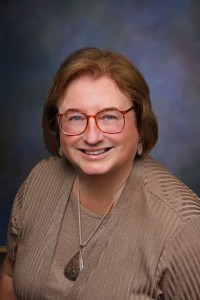
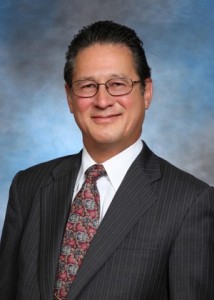
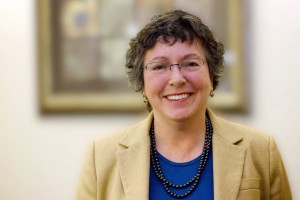


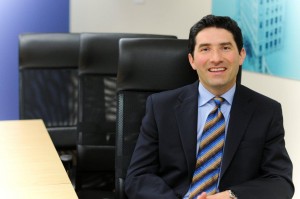

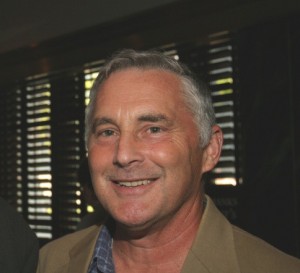
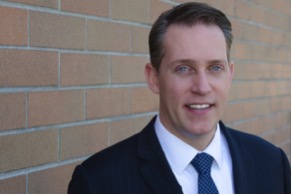




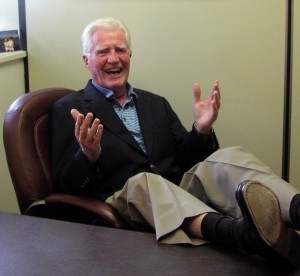

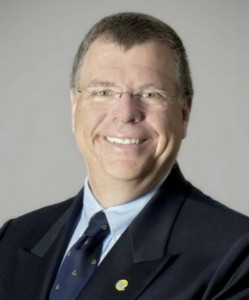

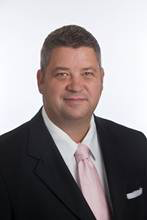
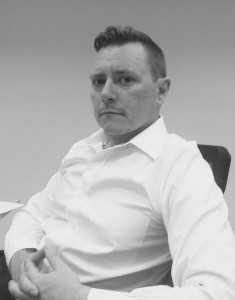



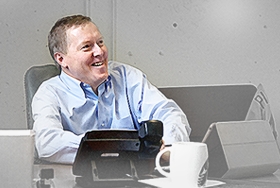


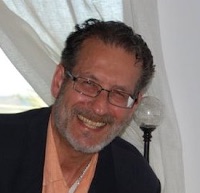



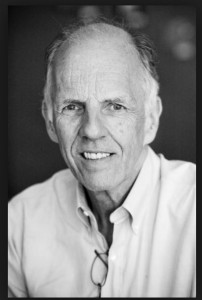
![crule at cpr[1]](http://thoughtfullaw.com/wp-content/uploads/2015/12/crule-at-cpr1.jpg)
